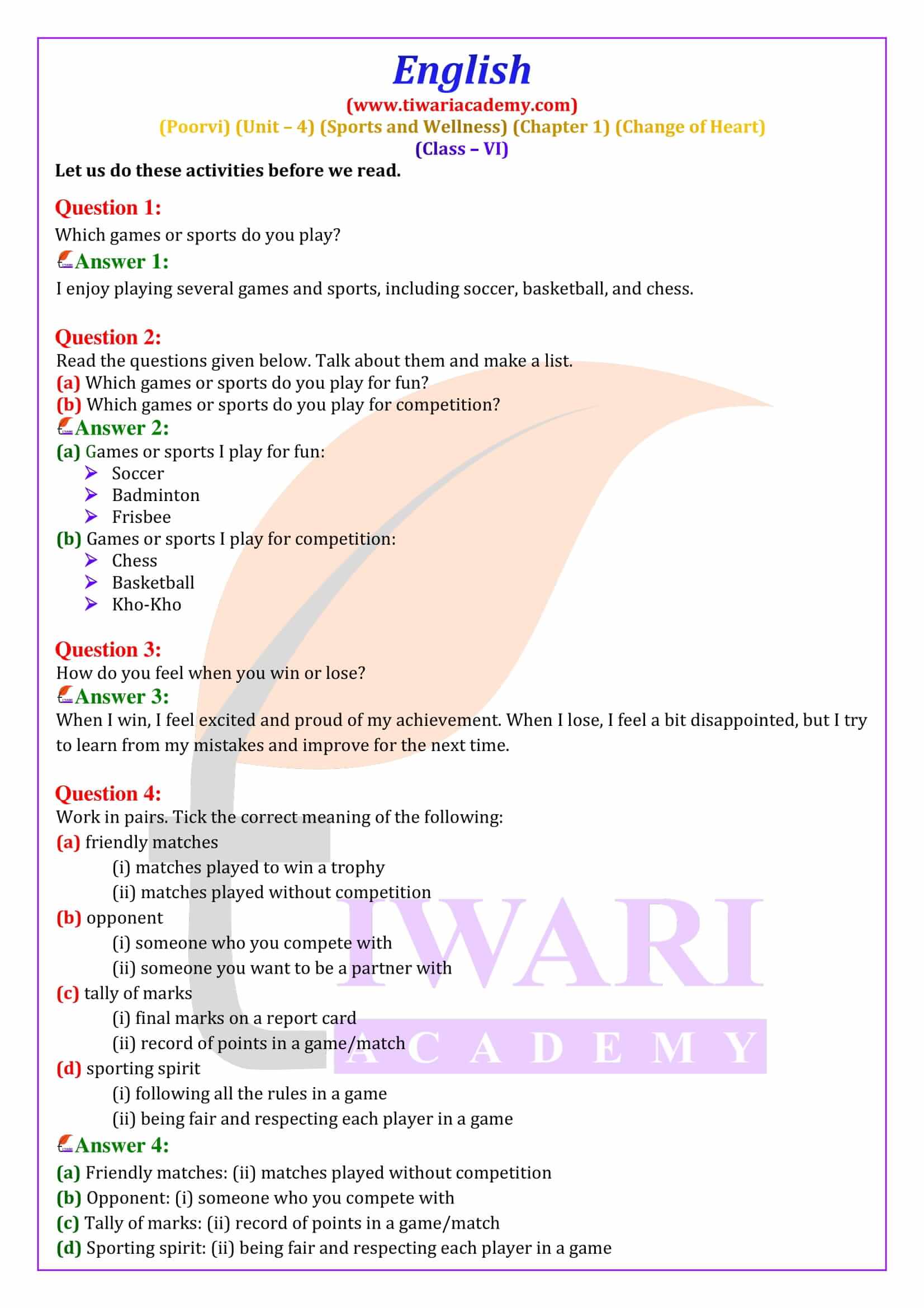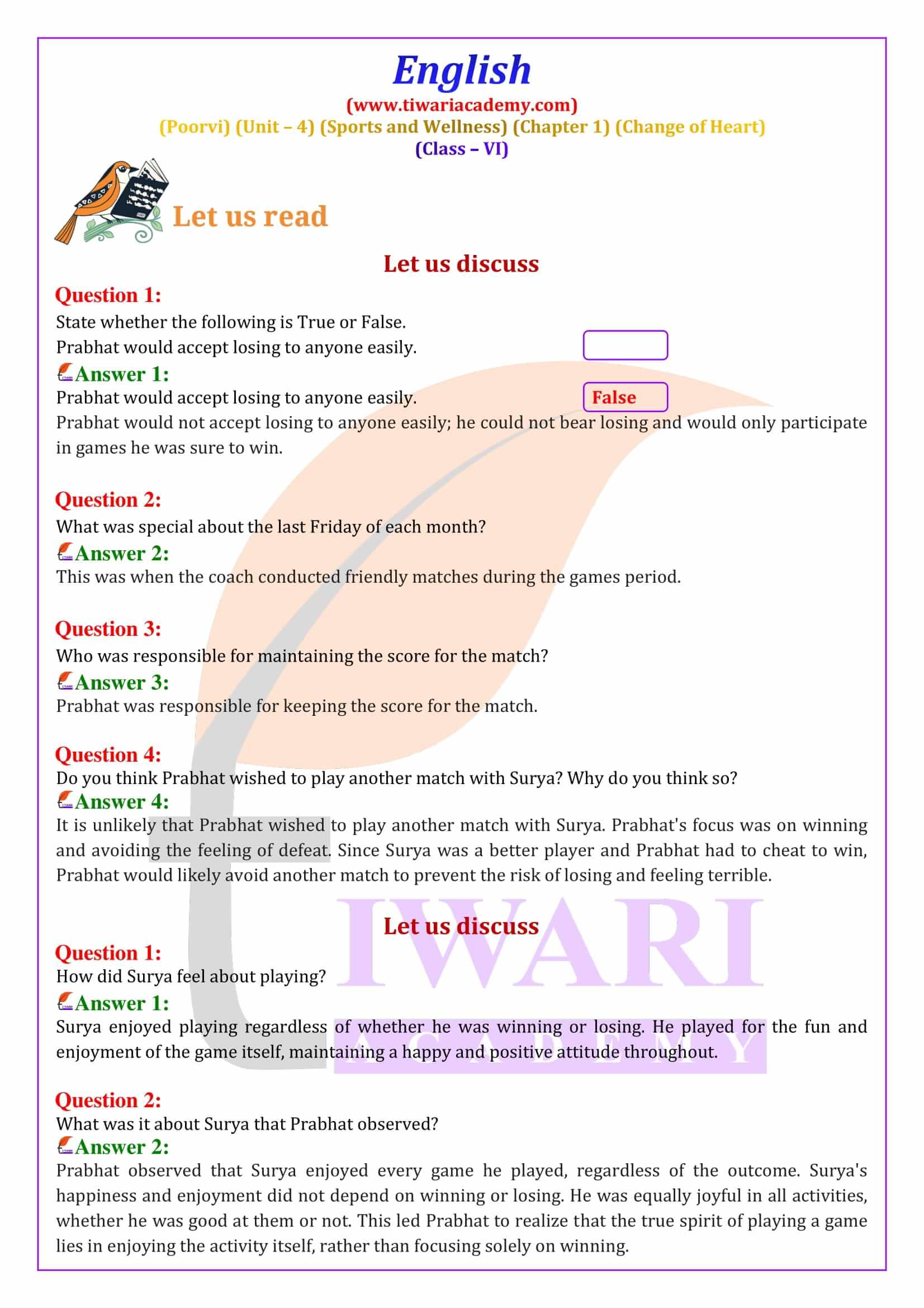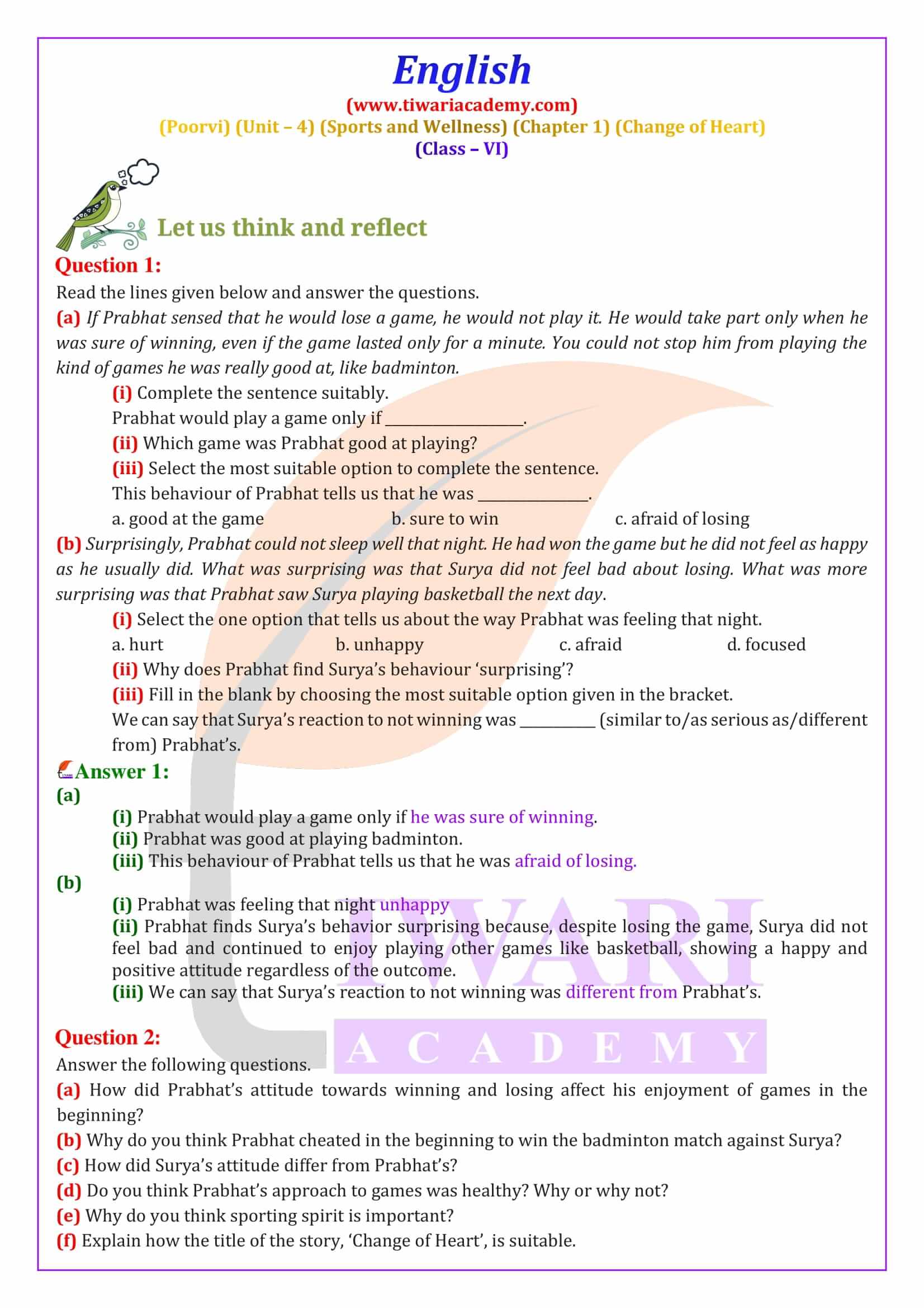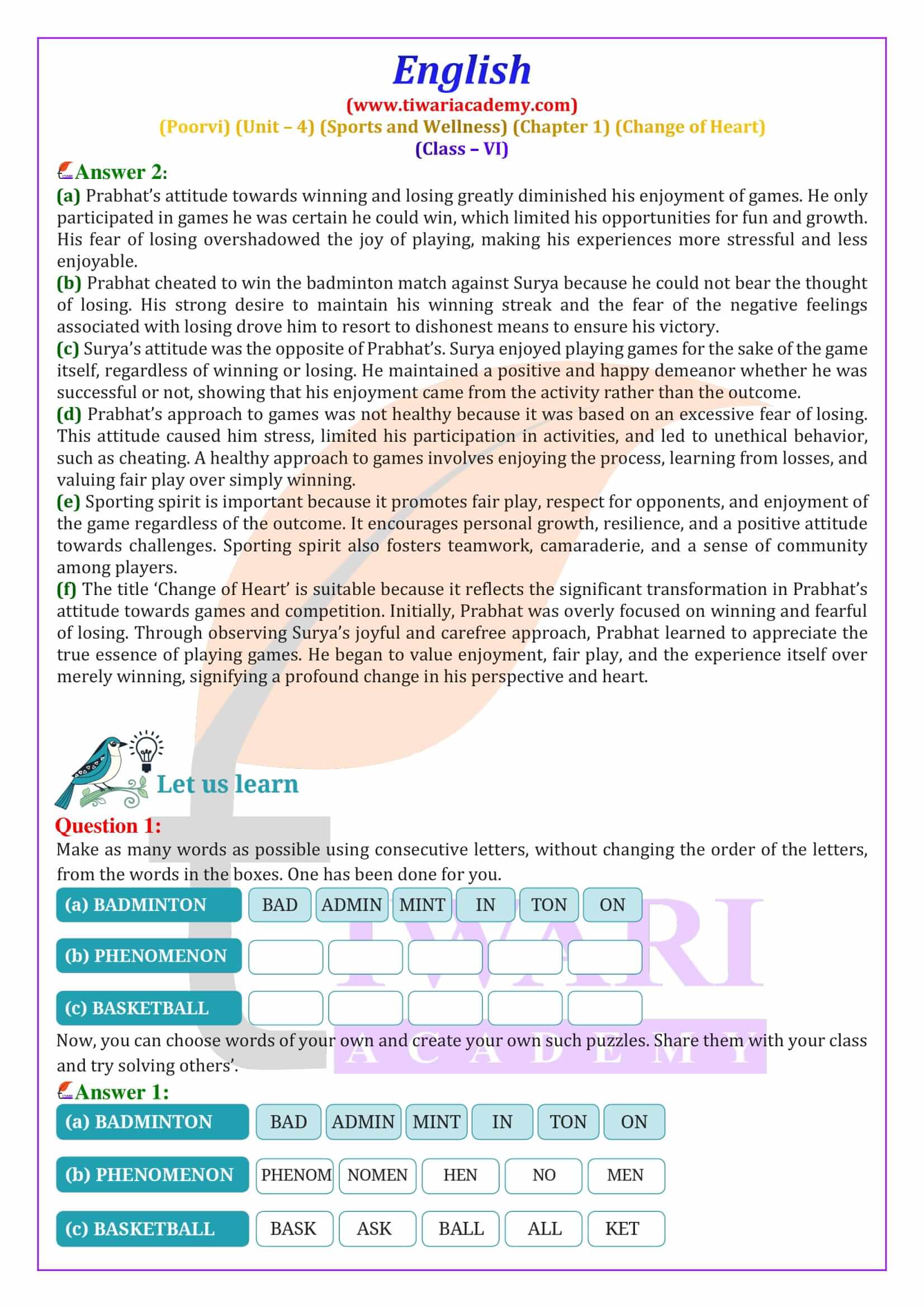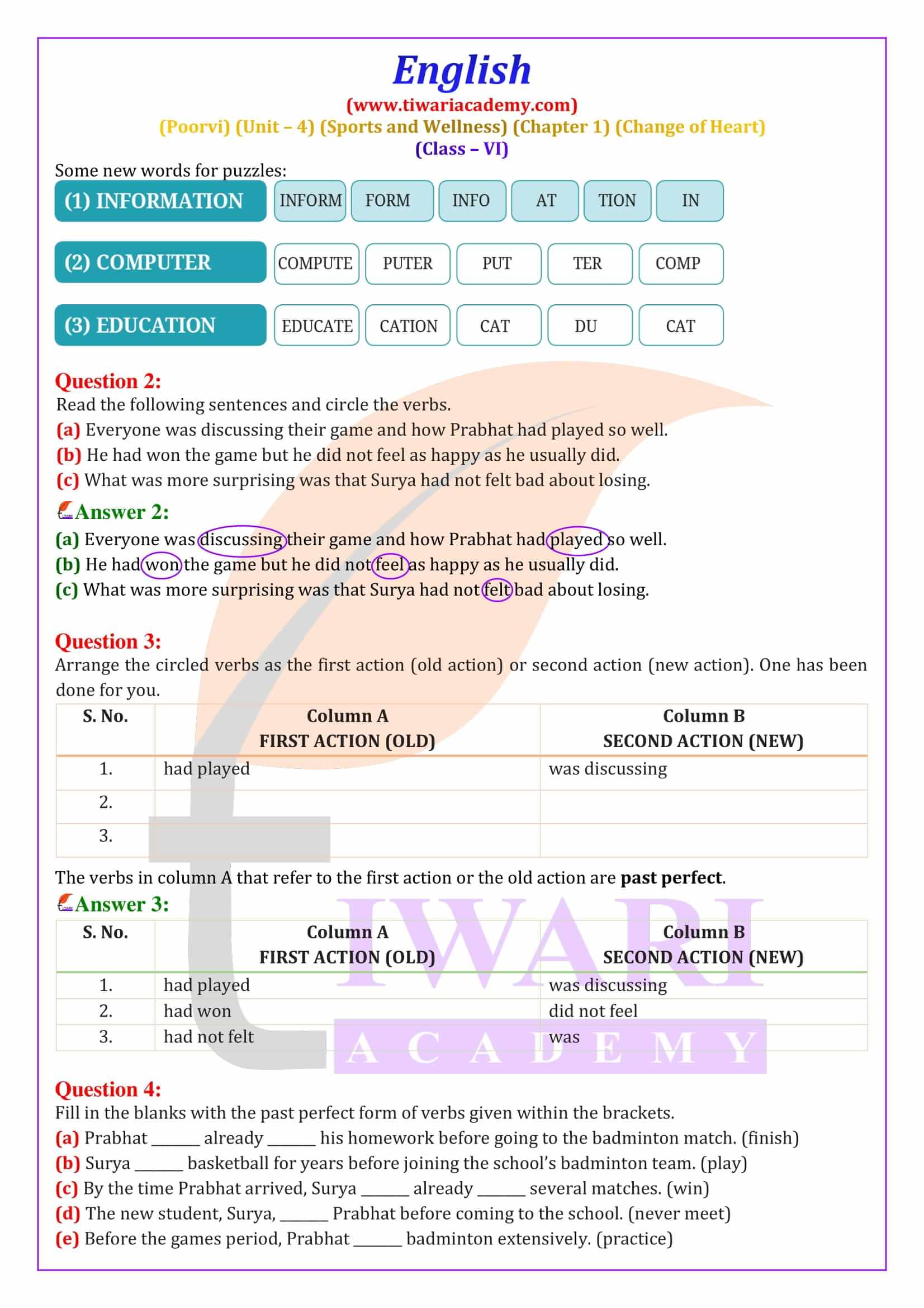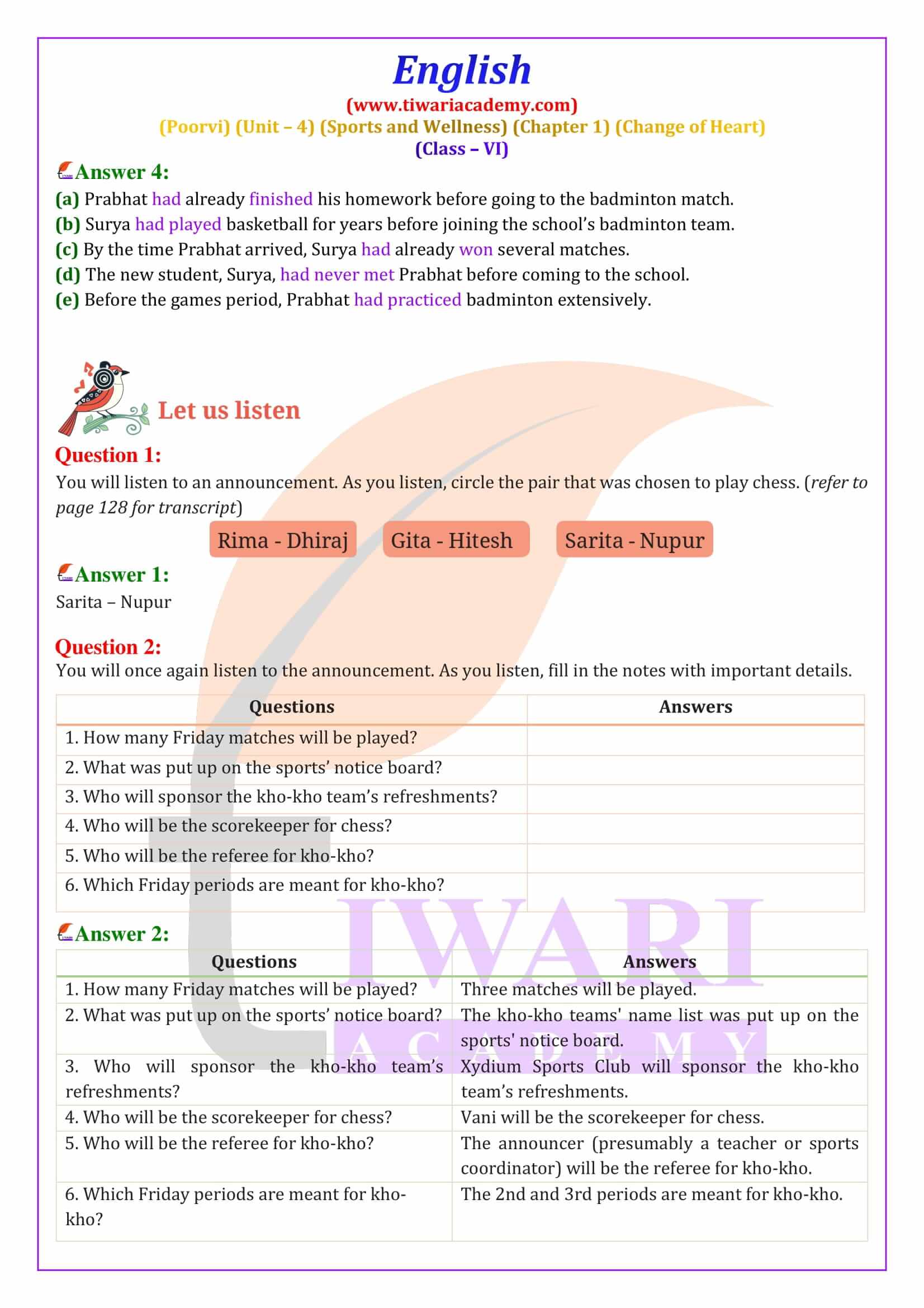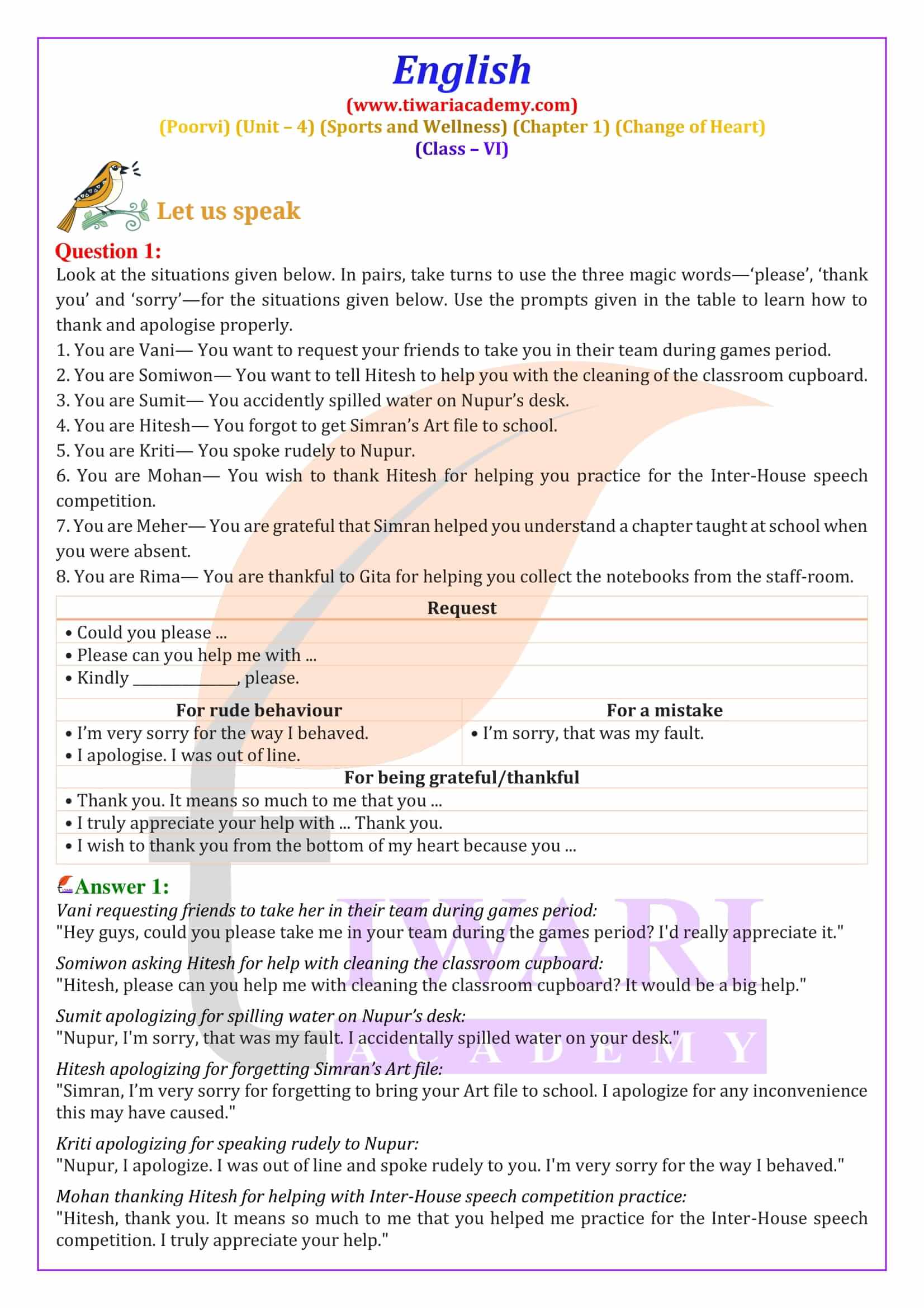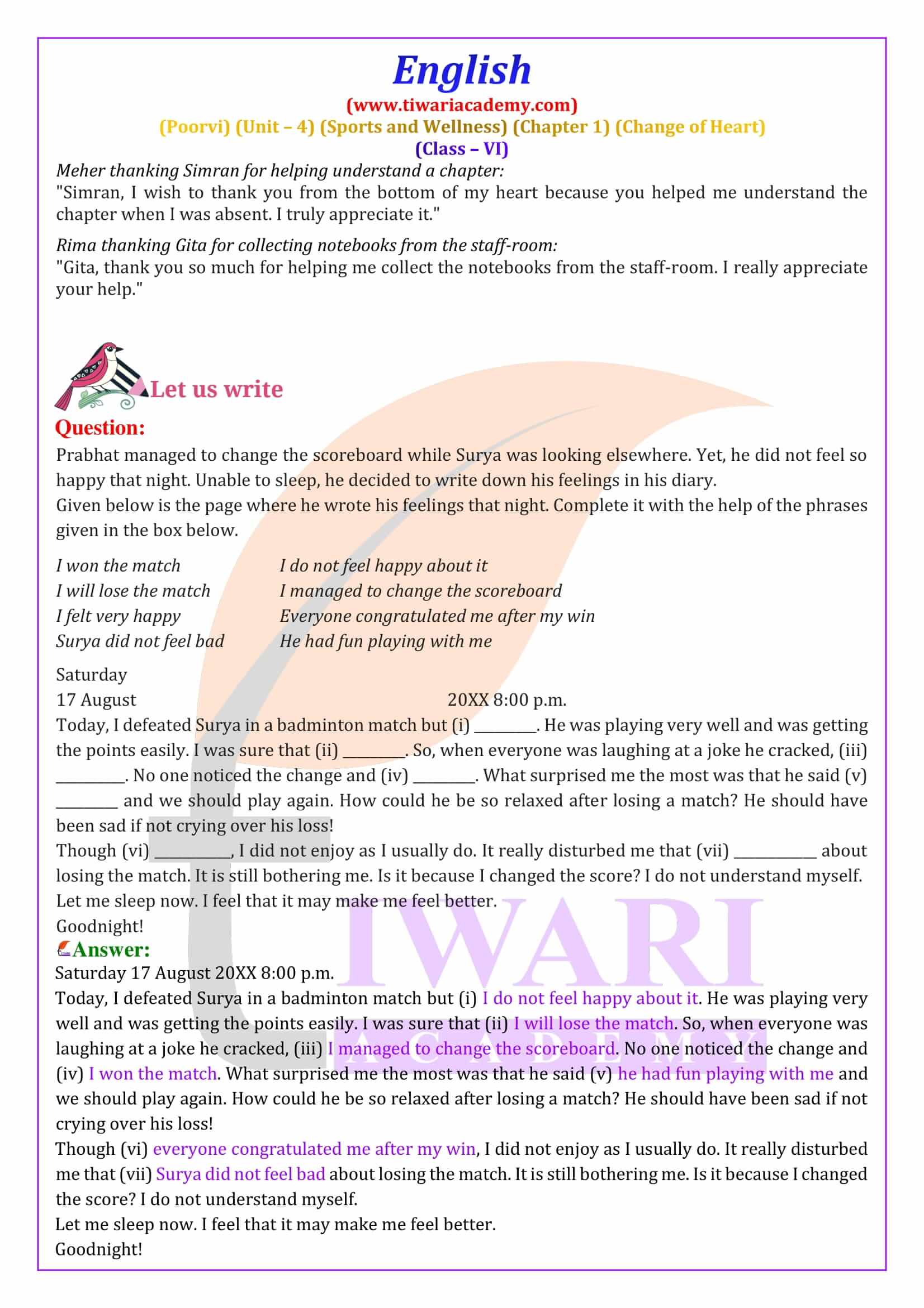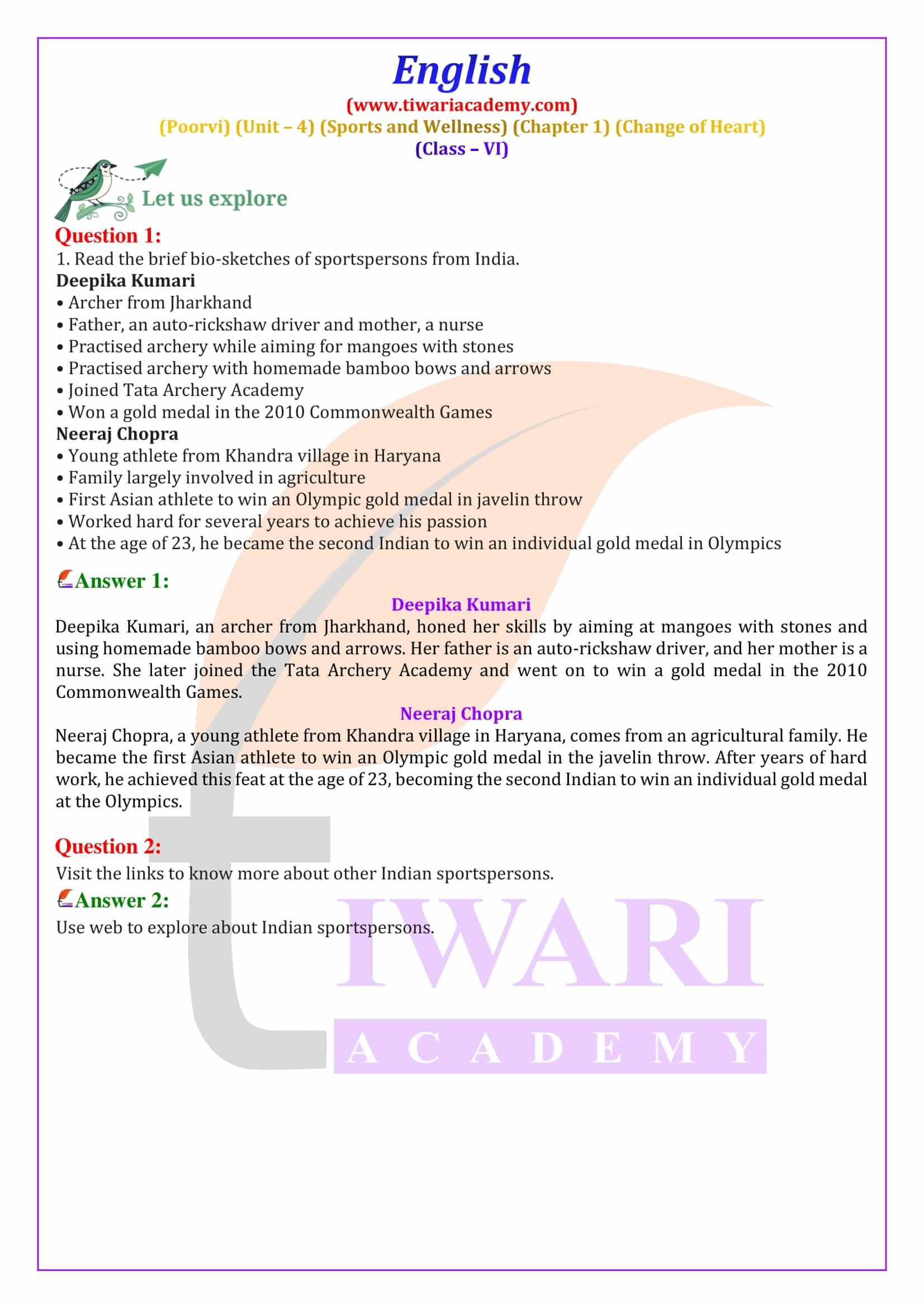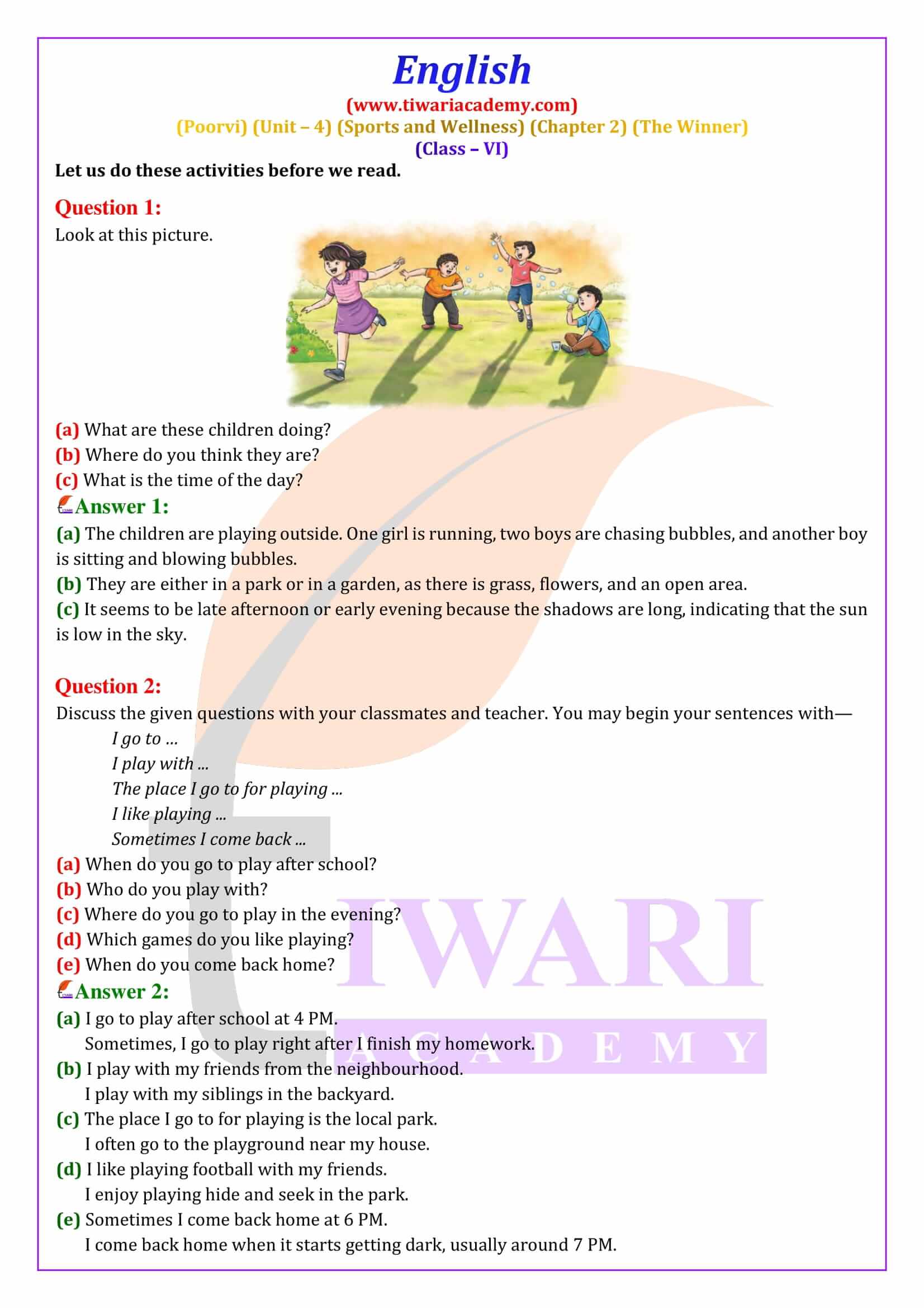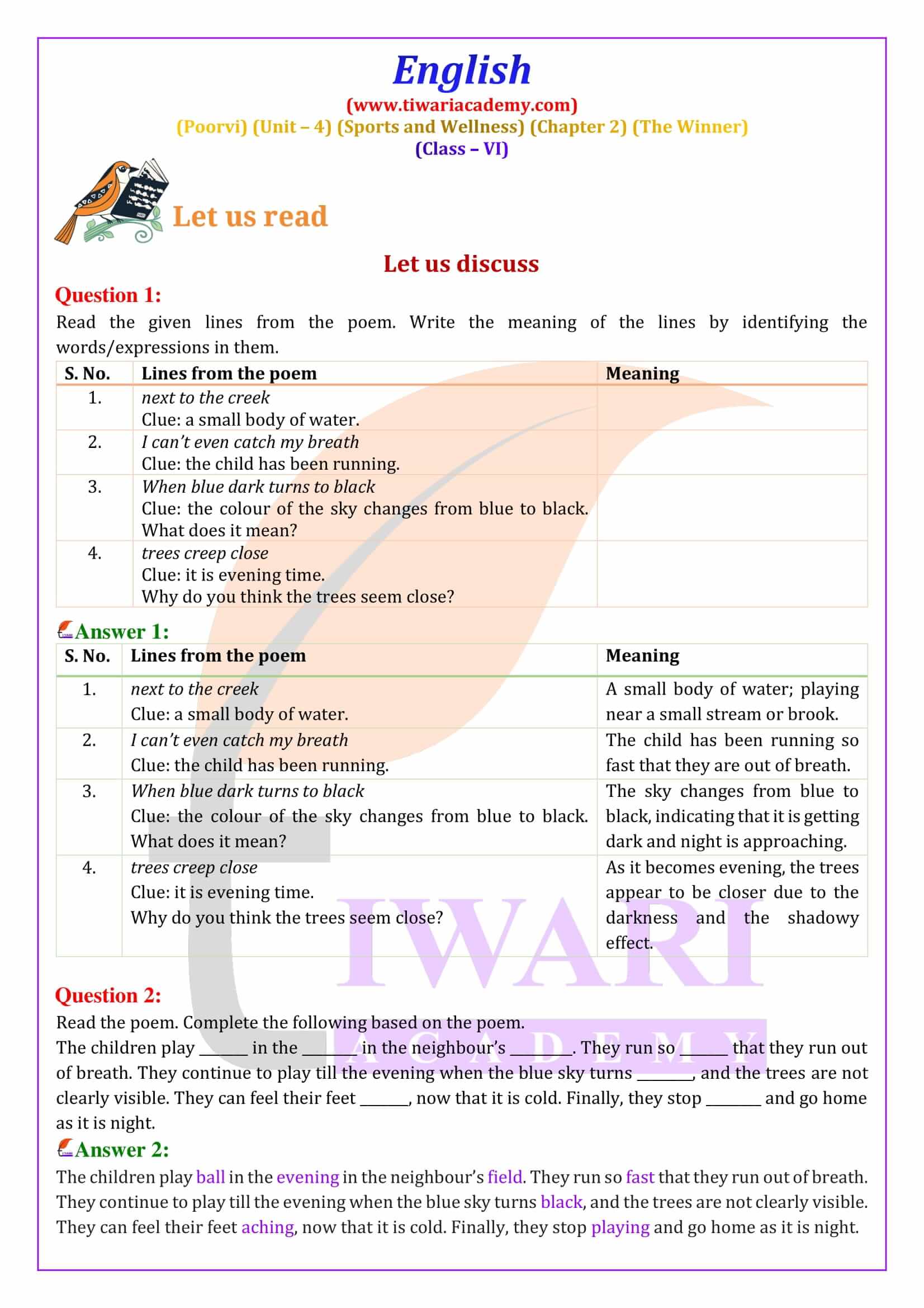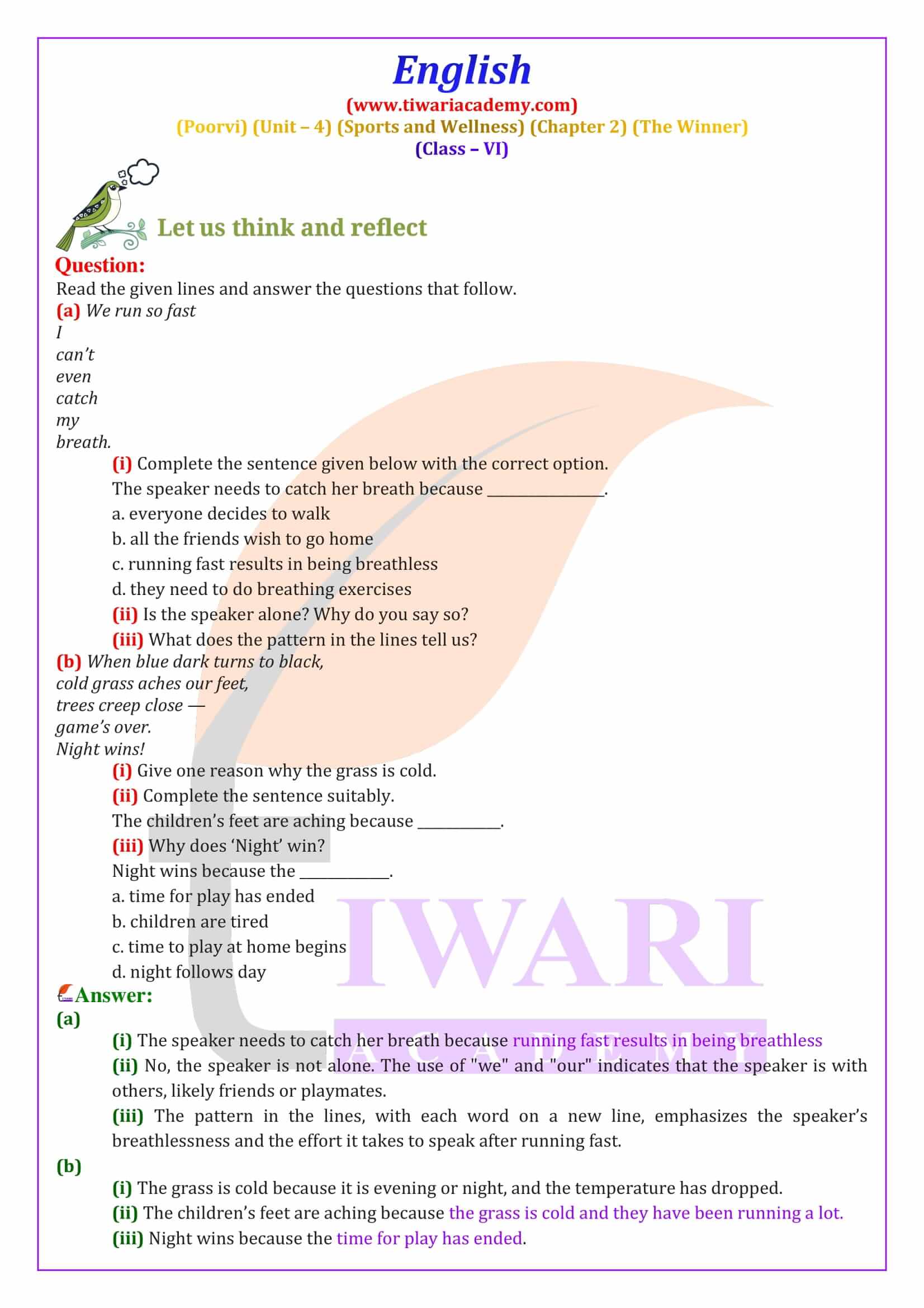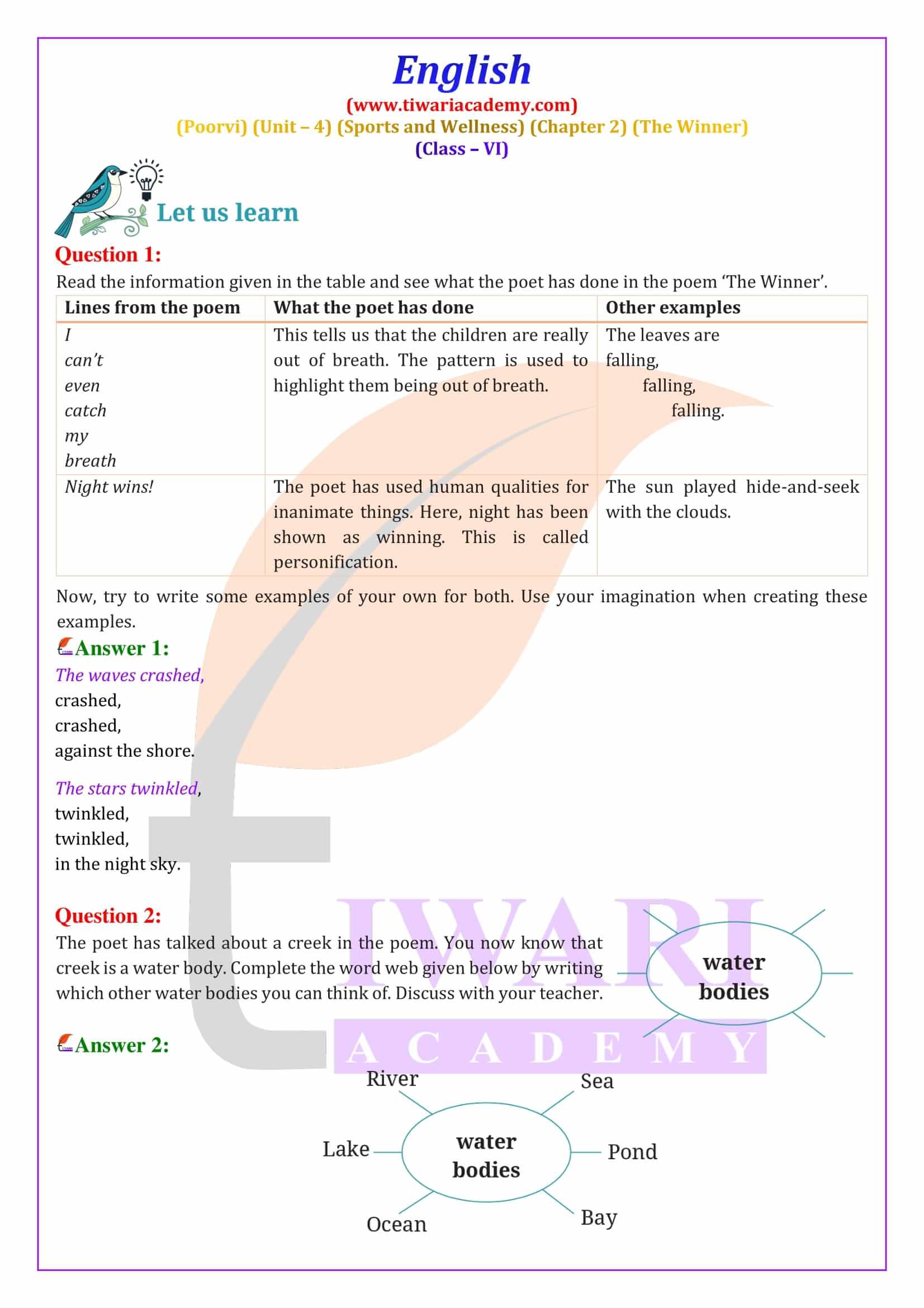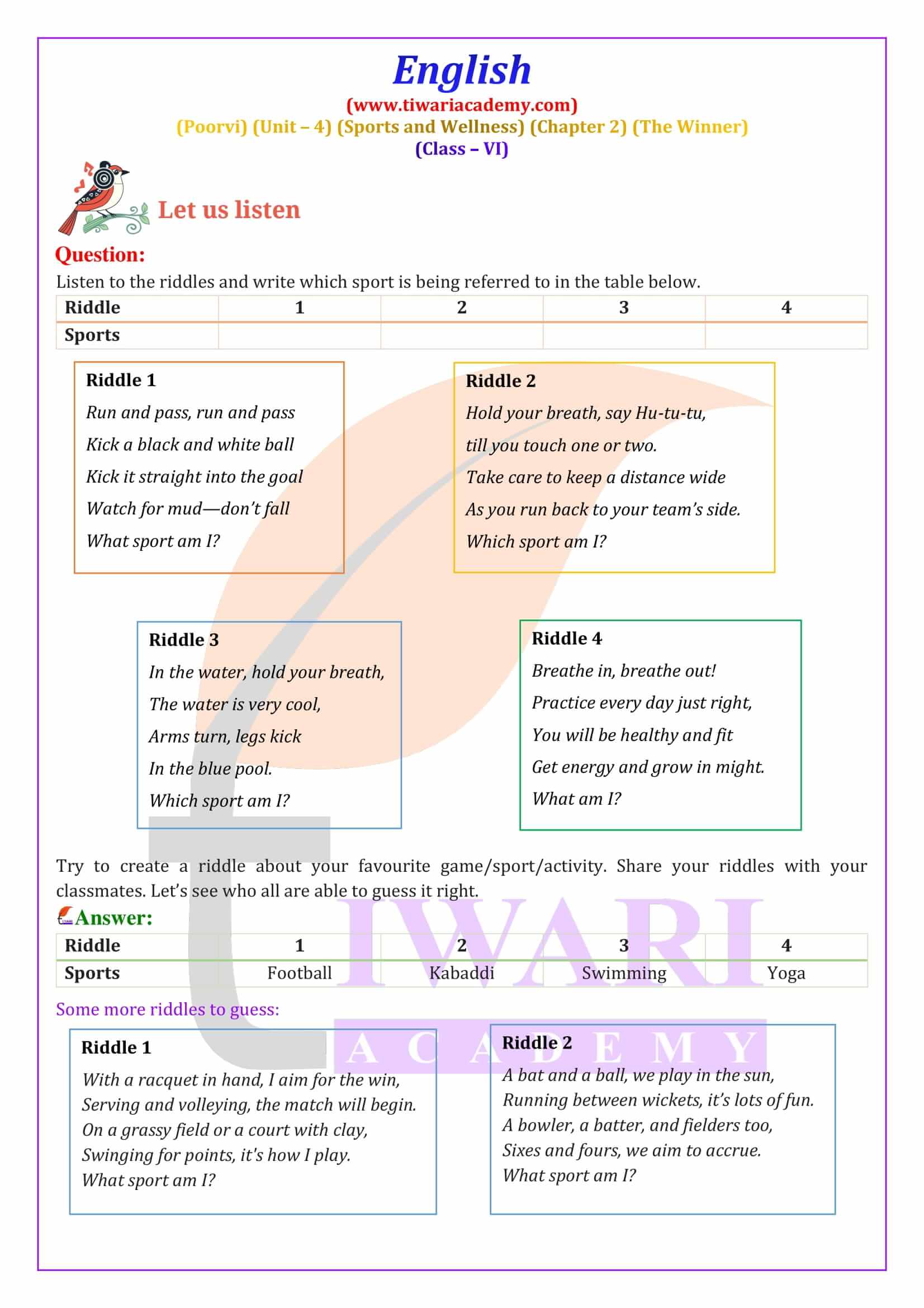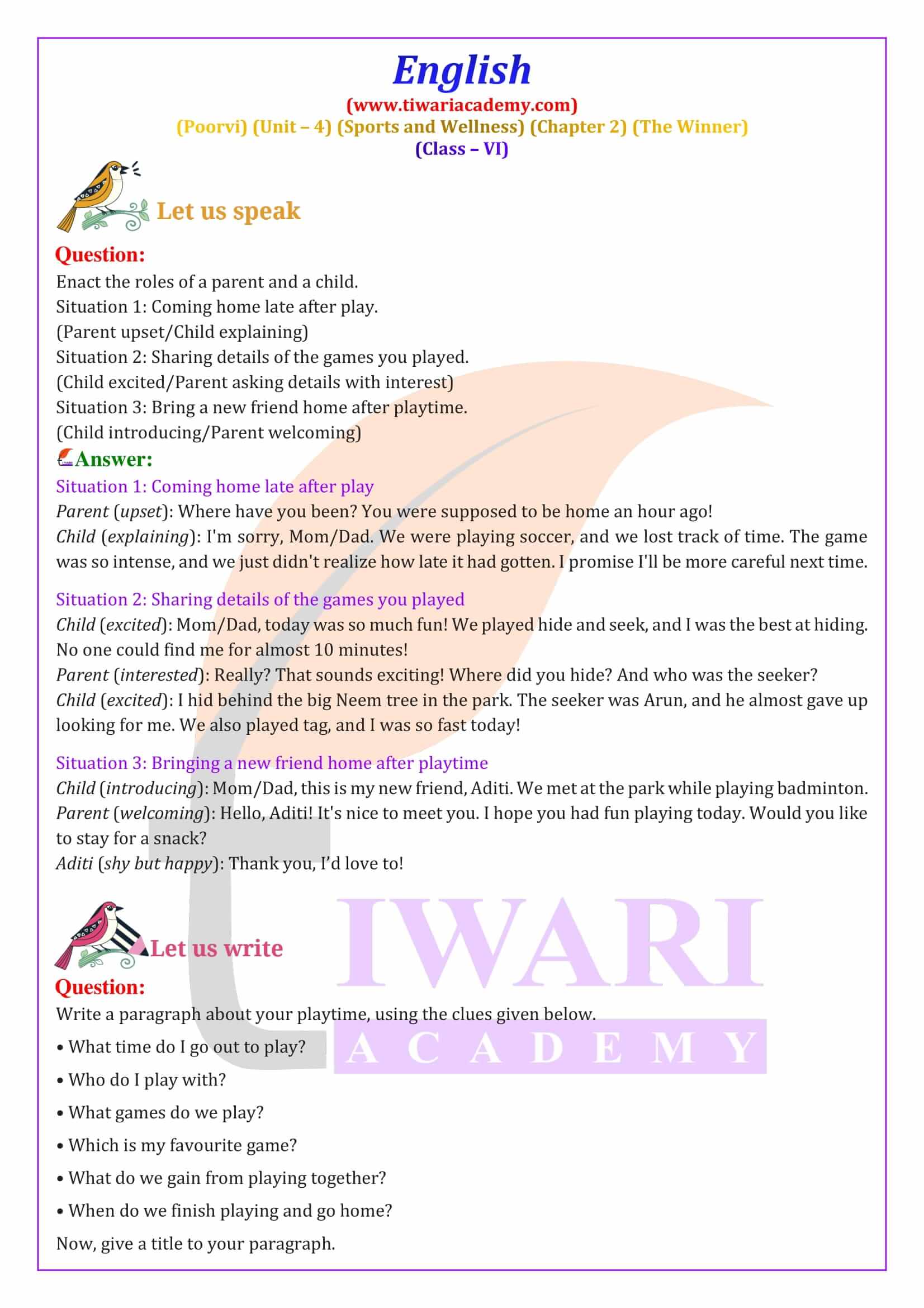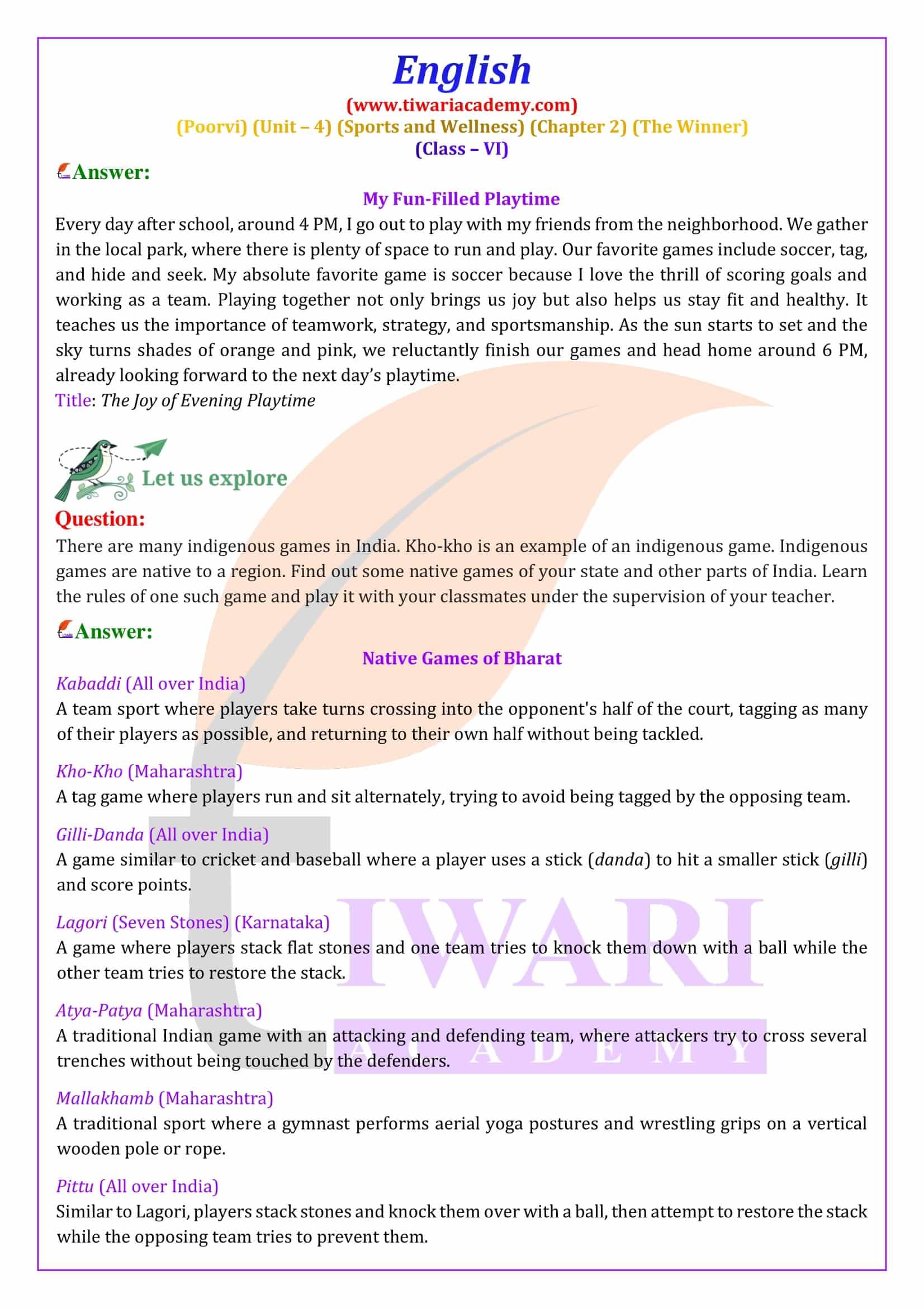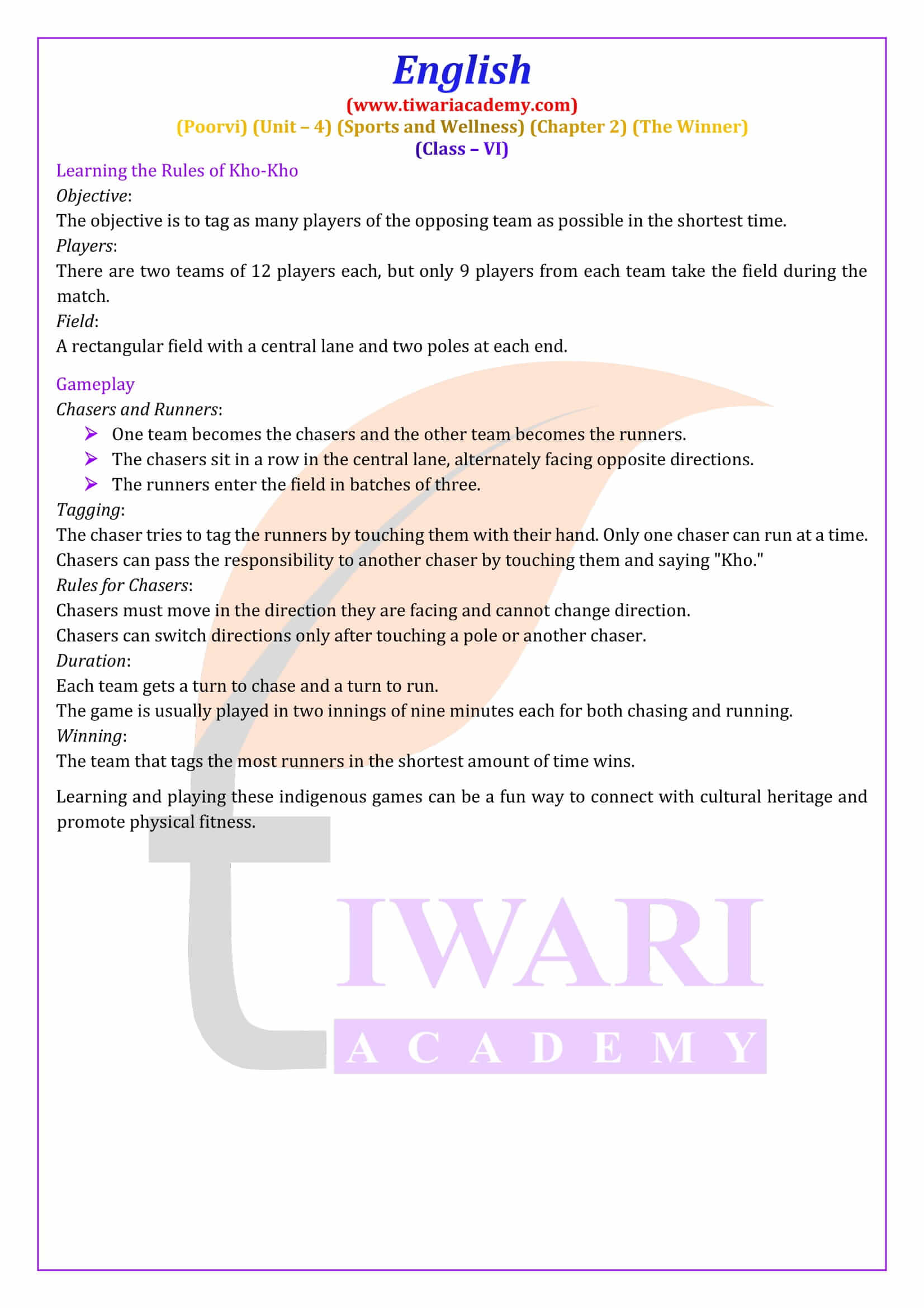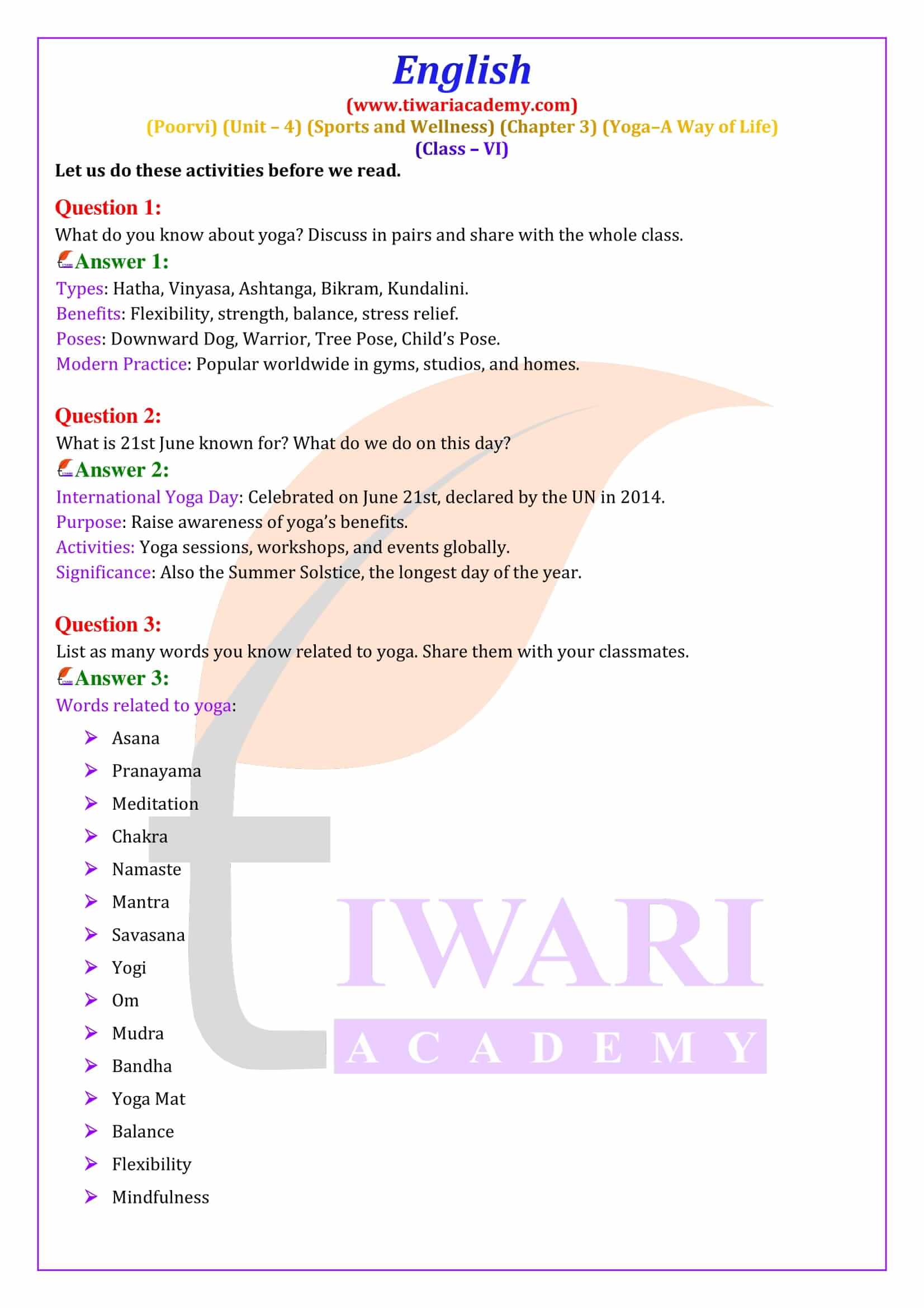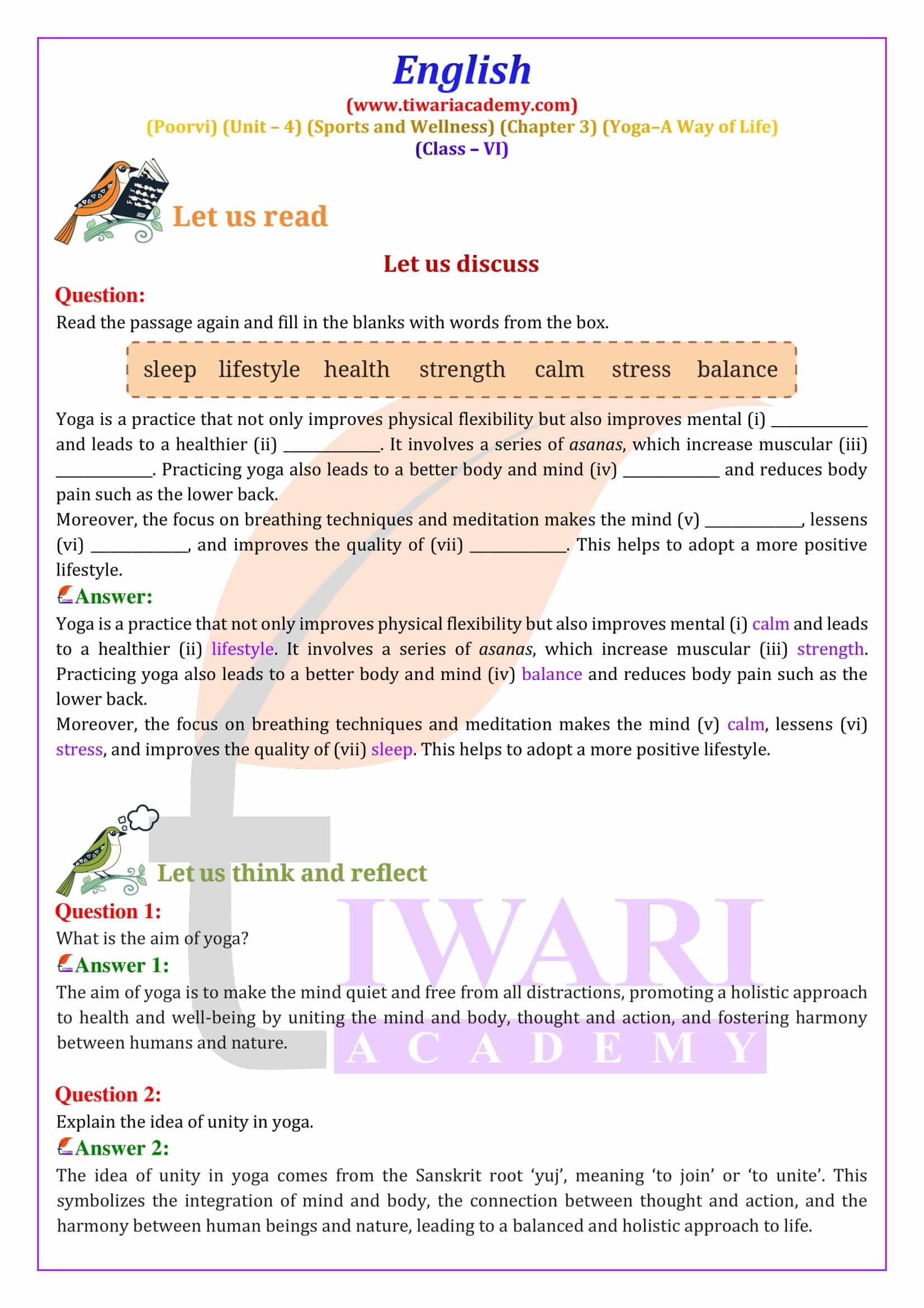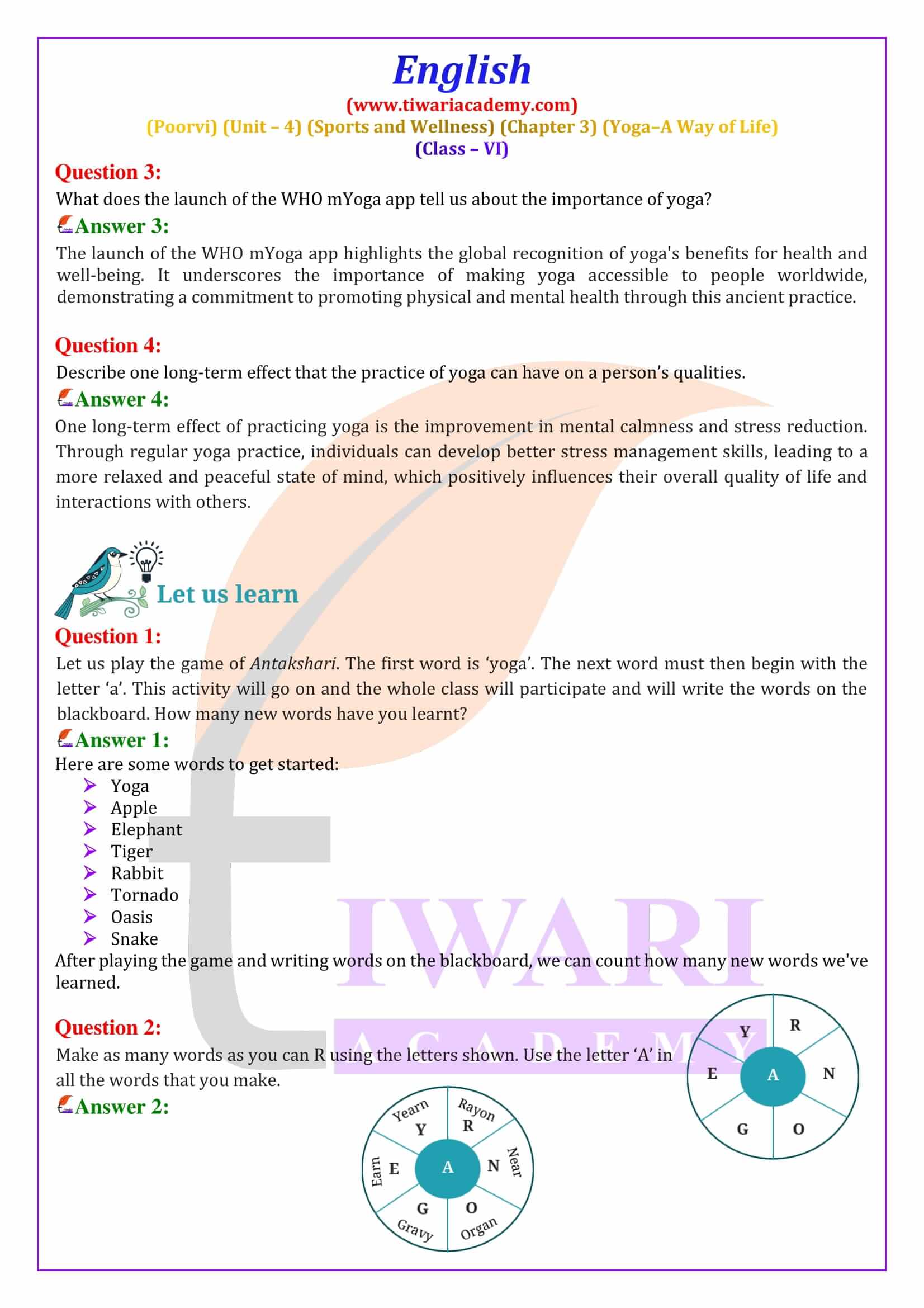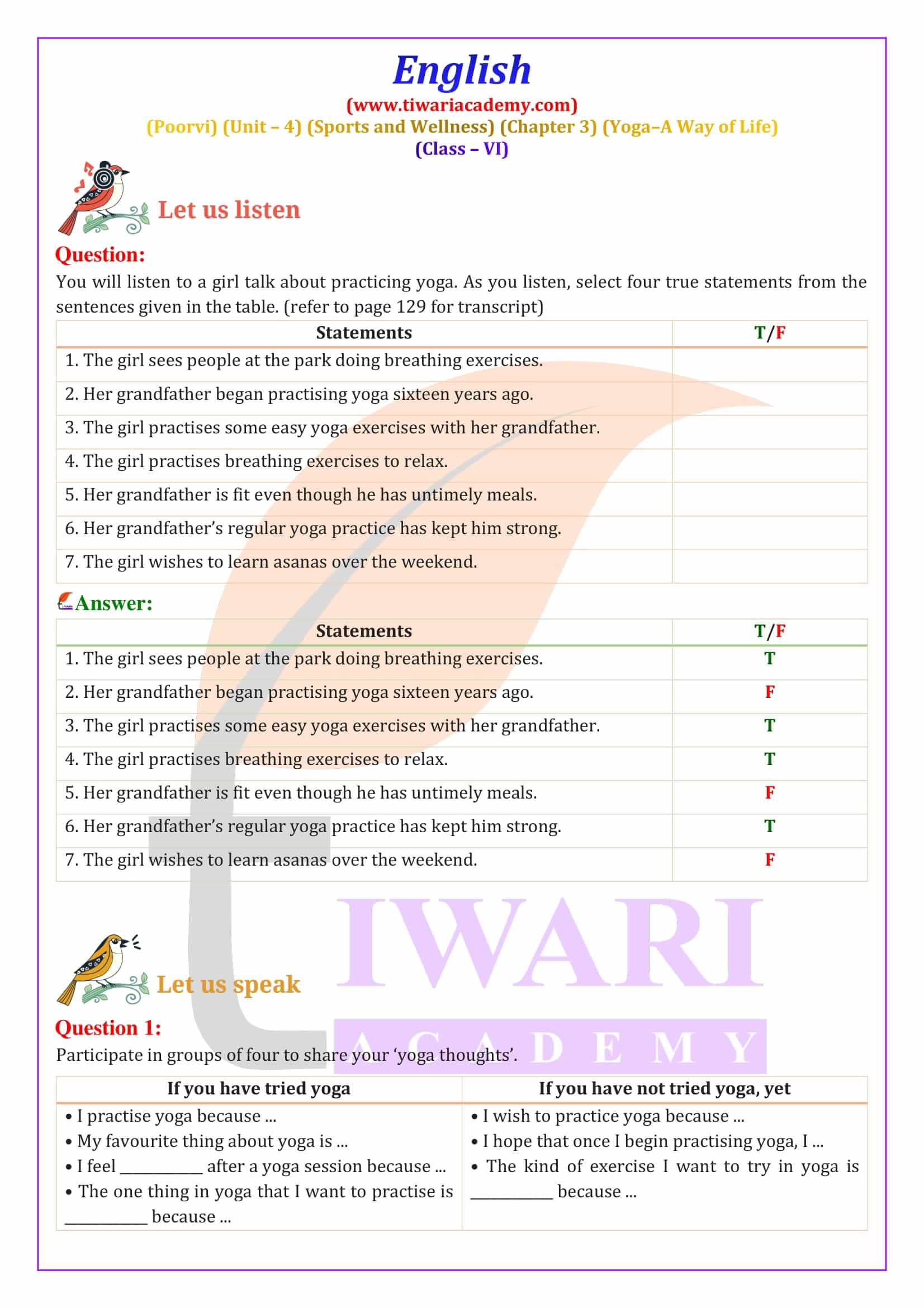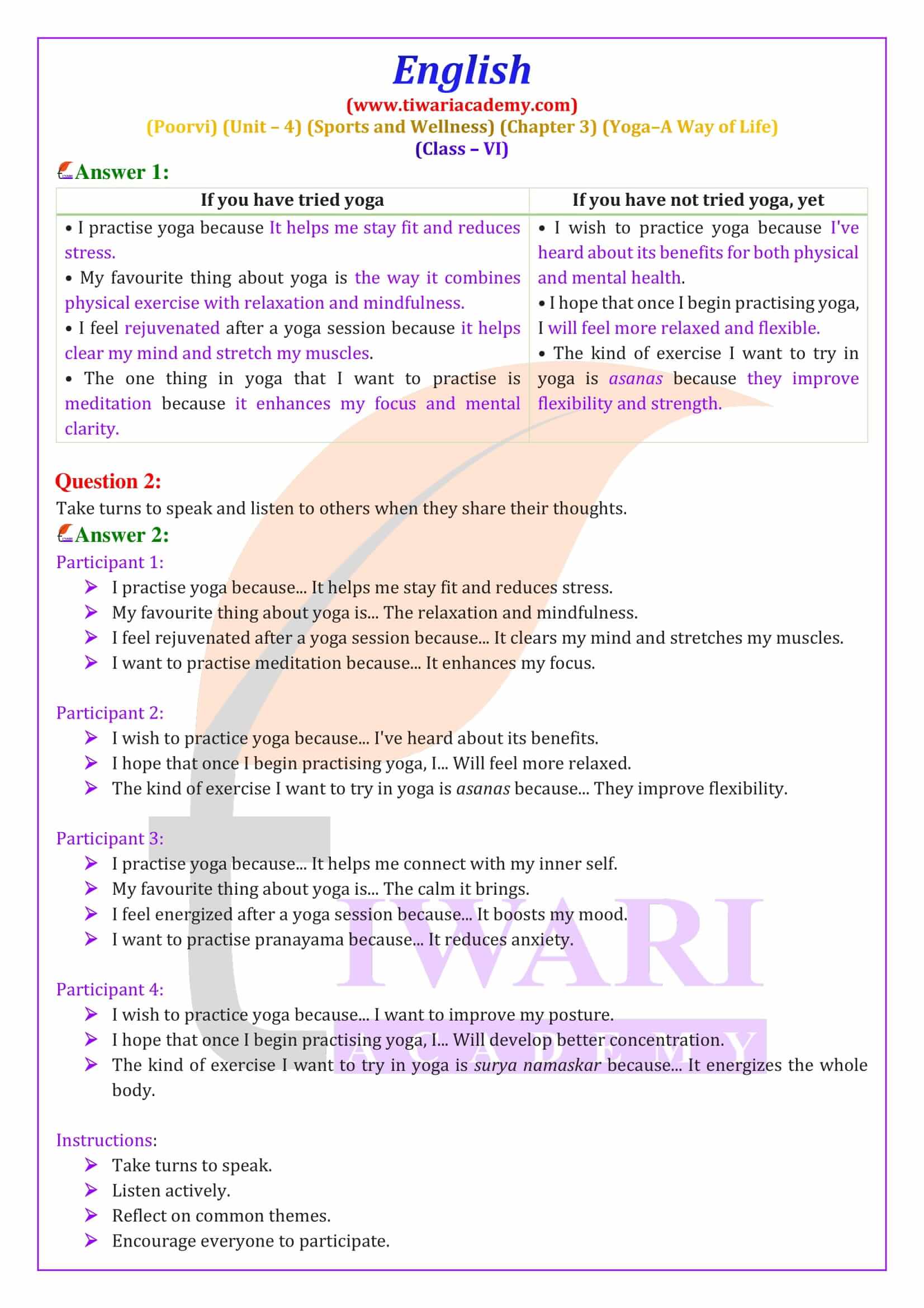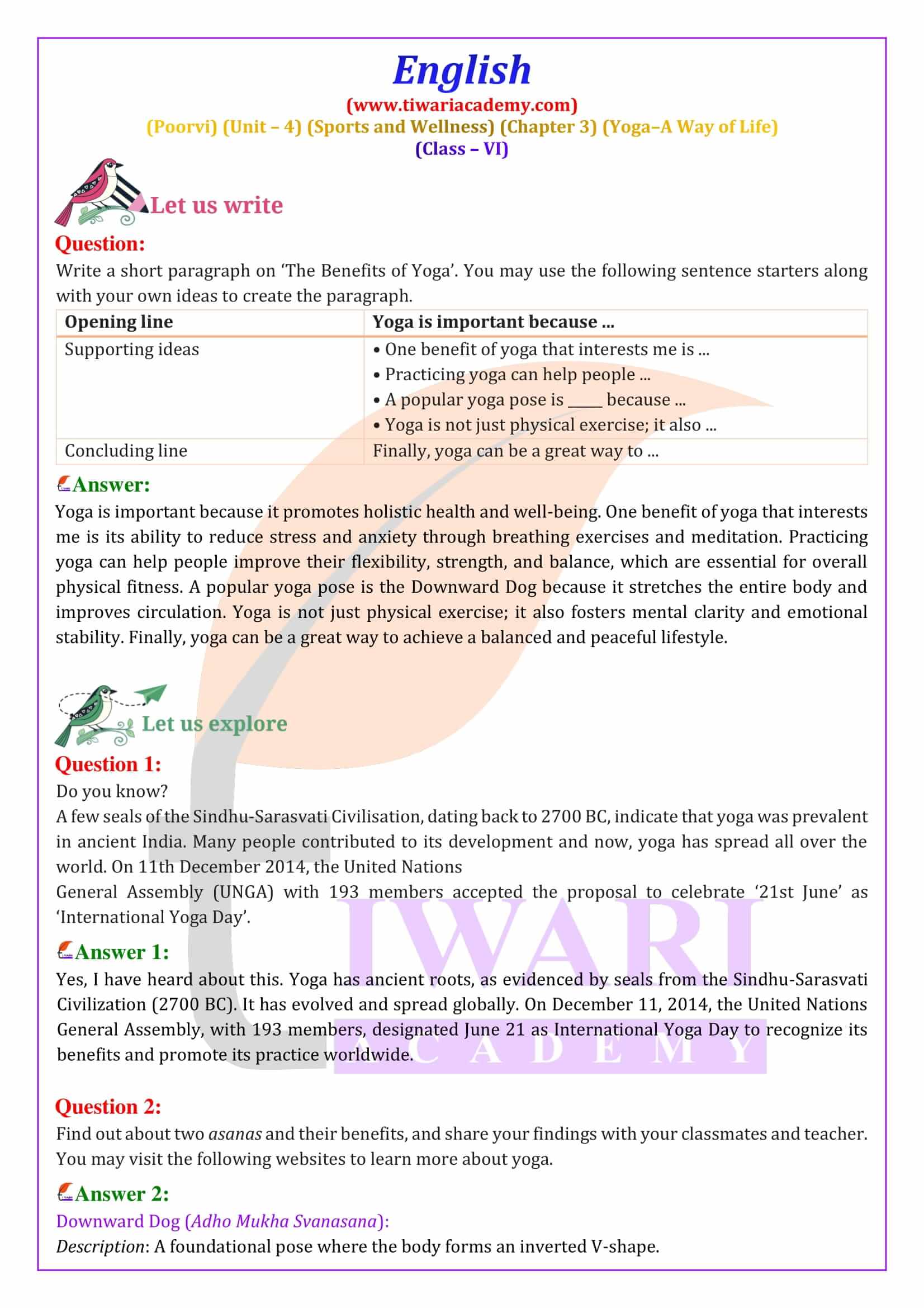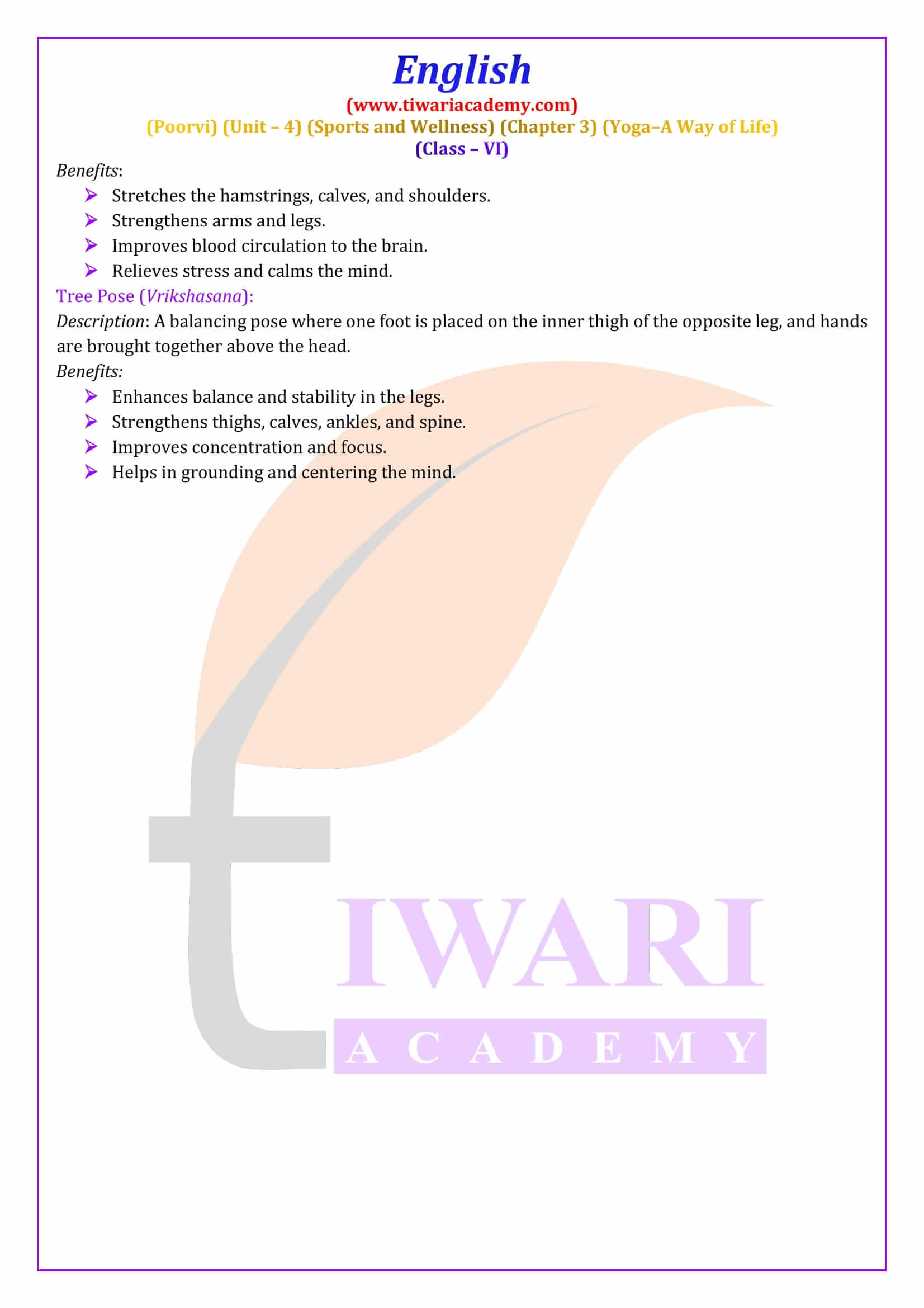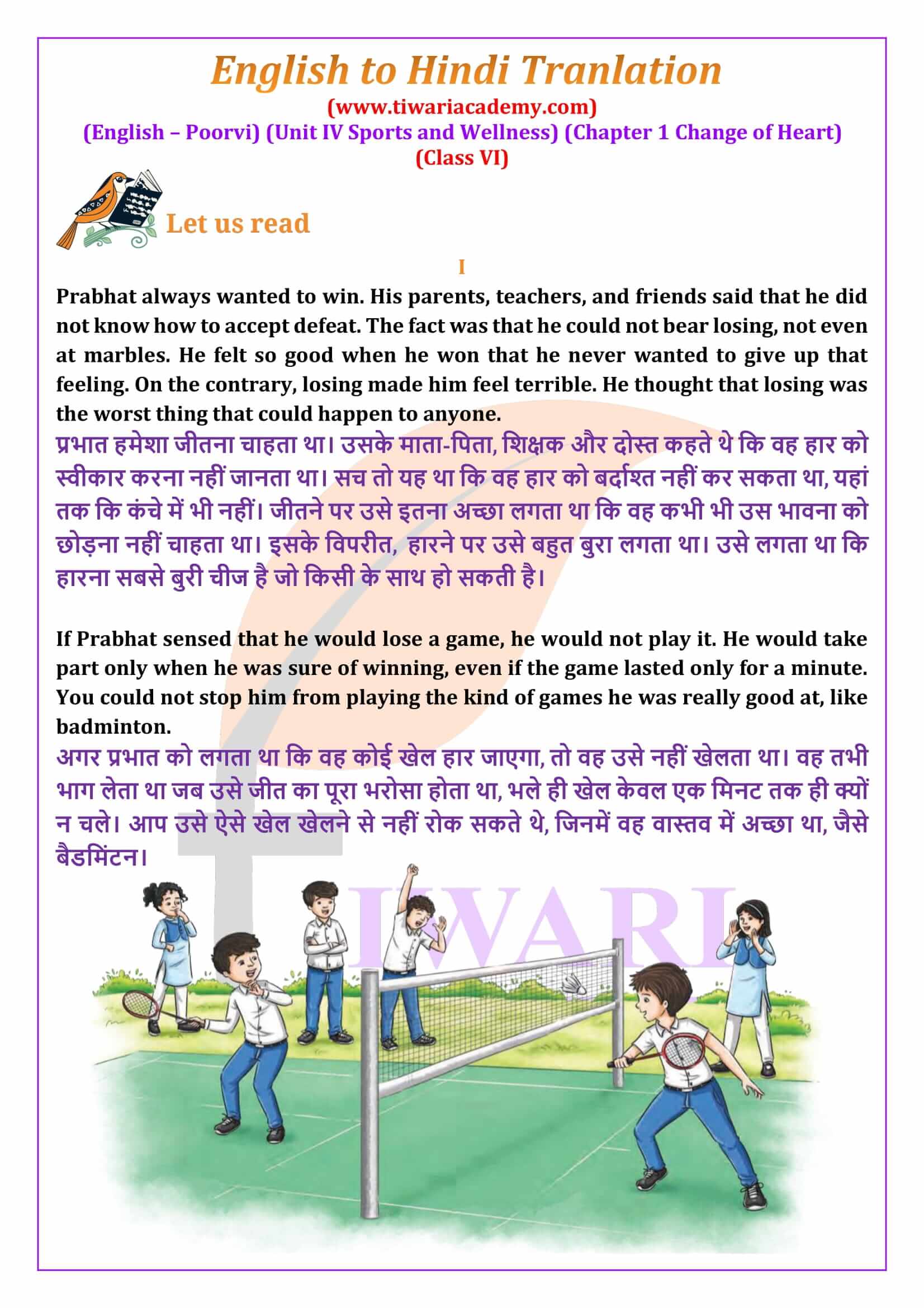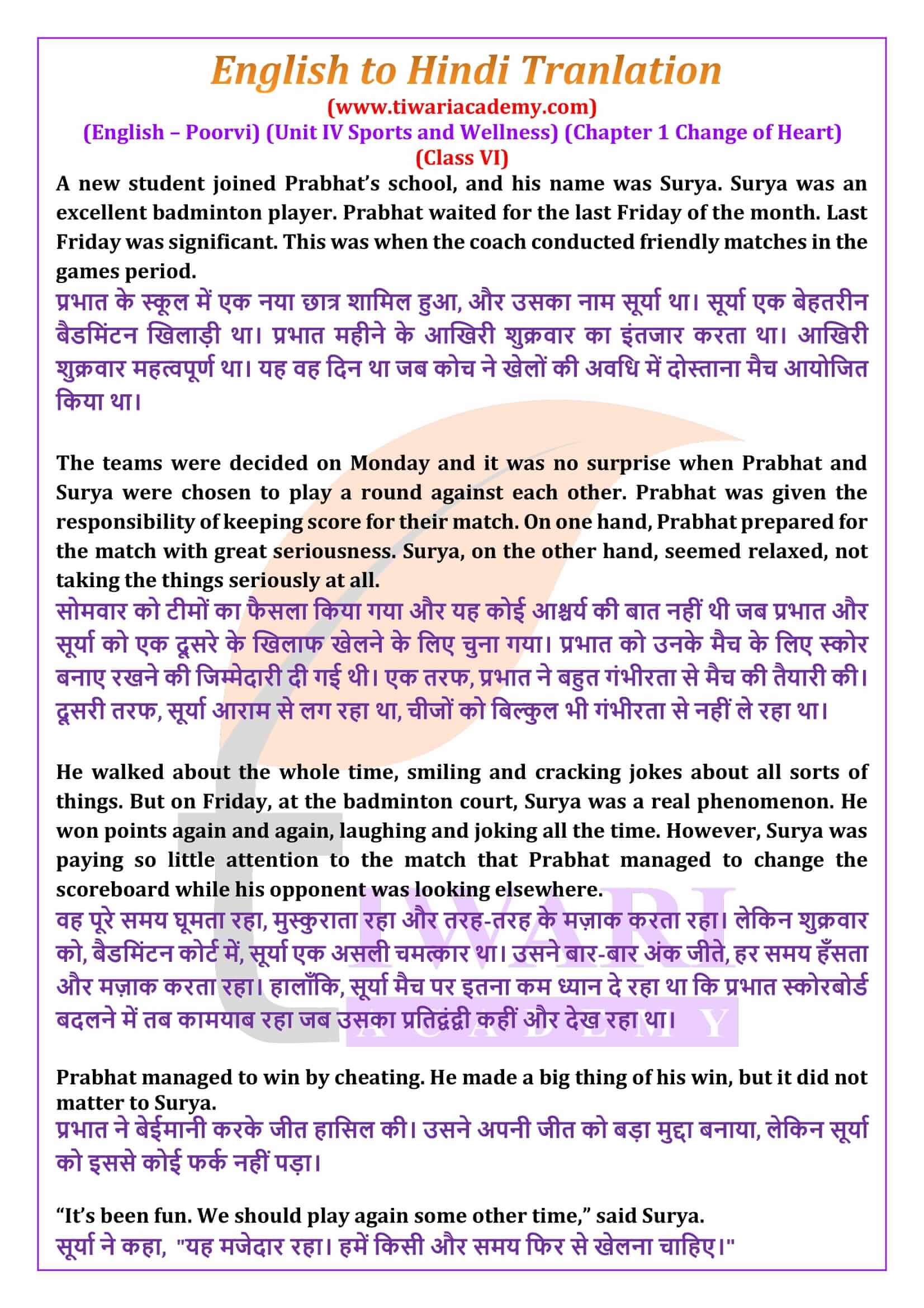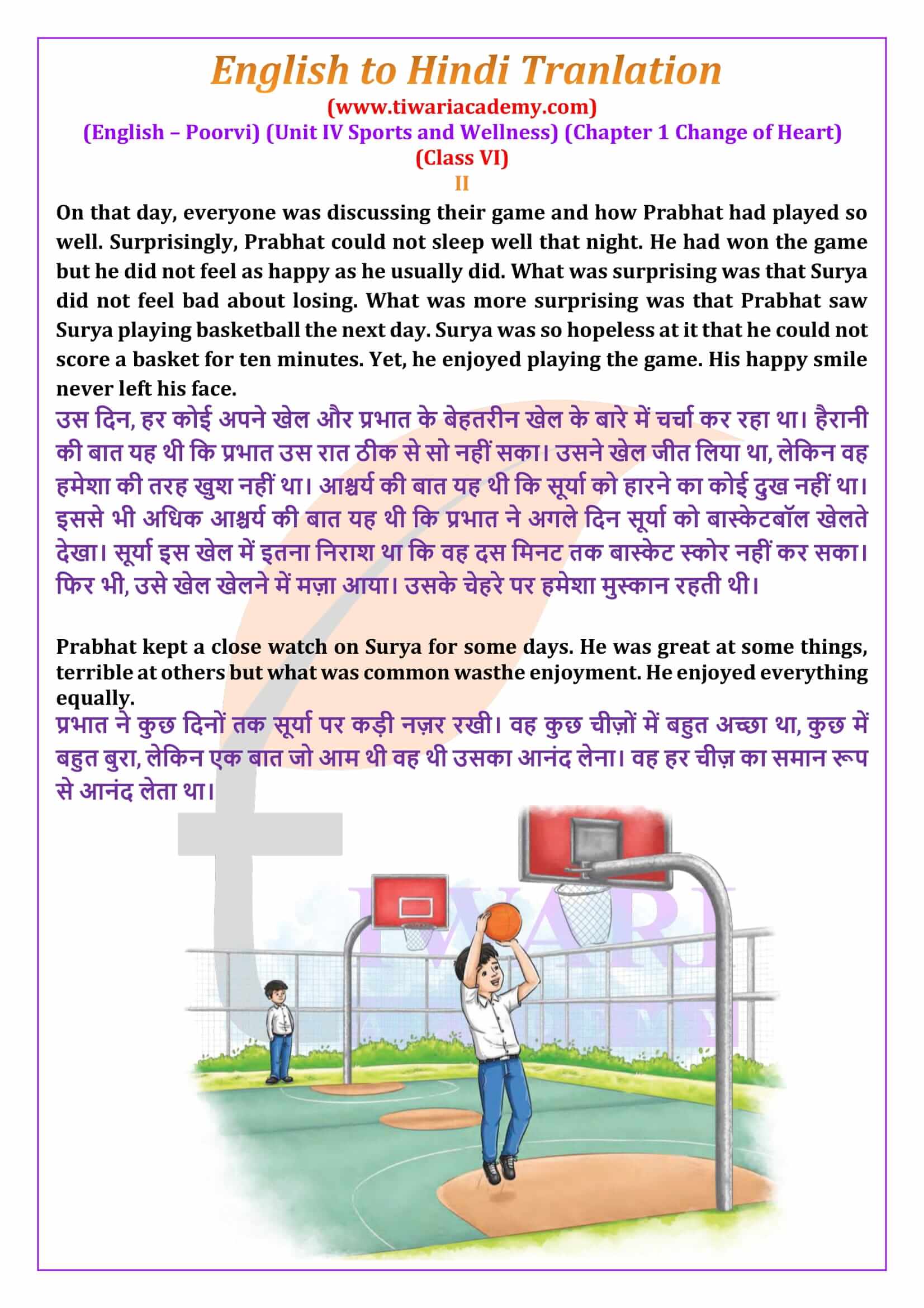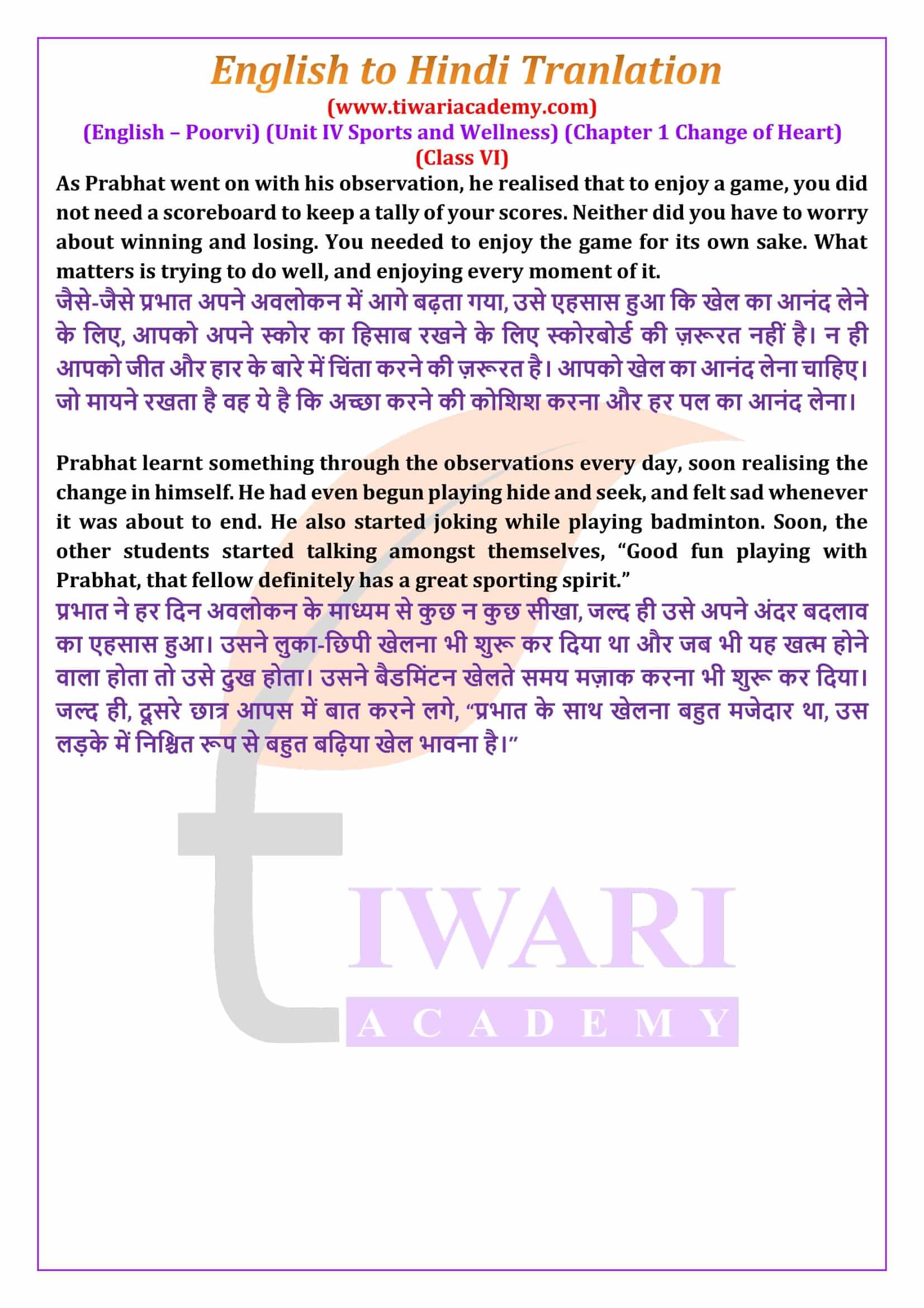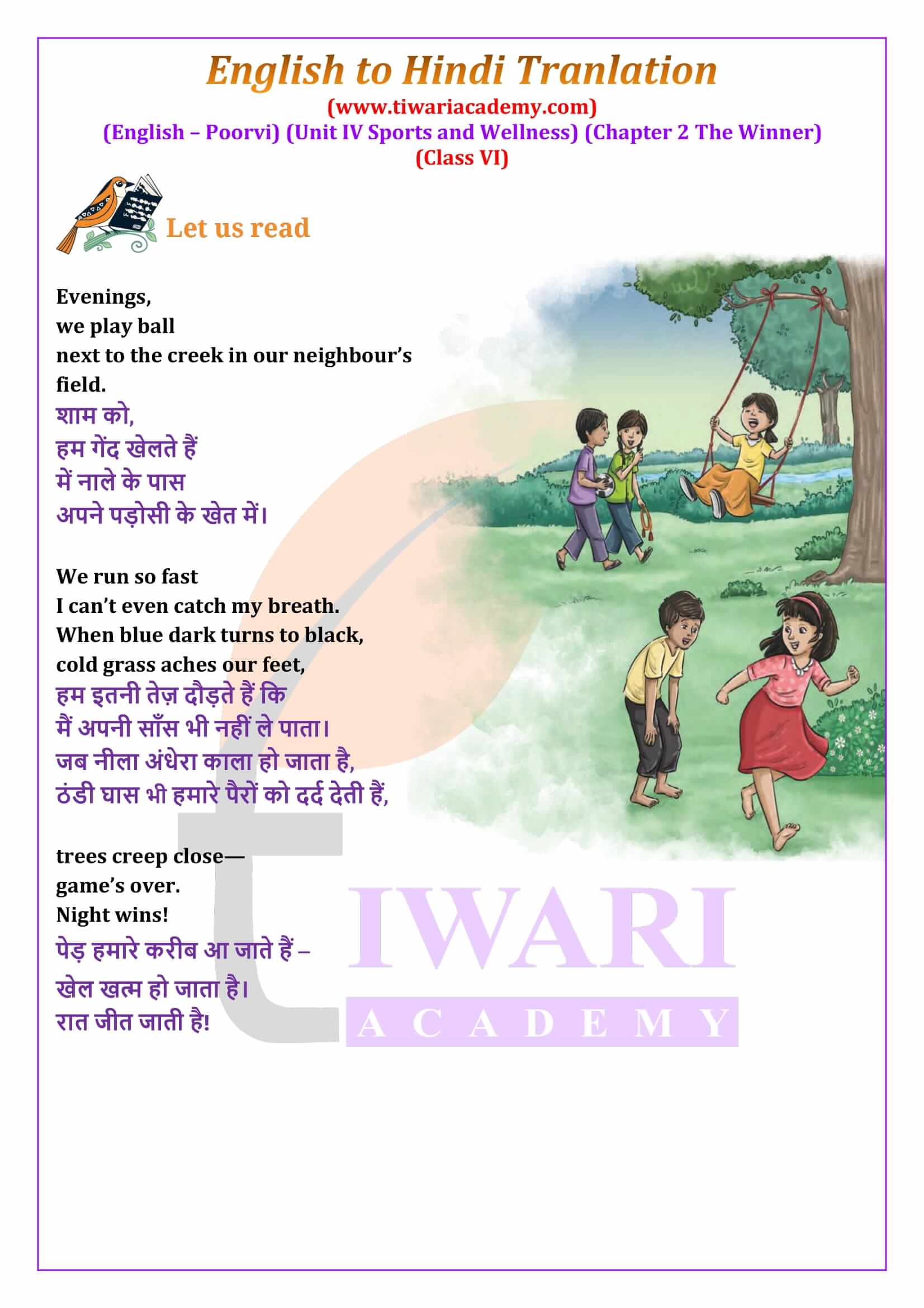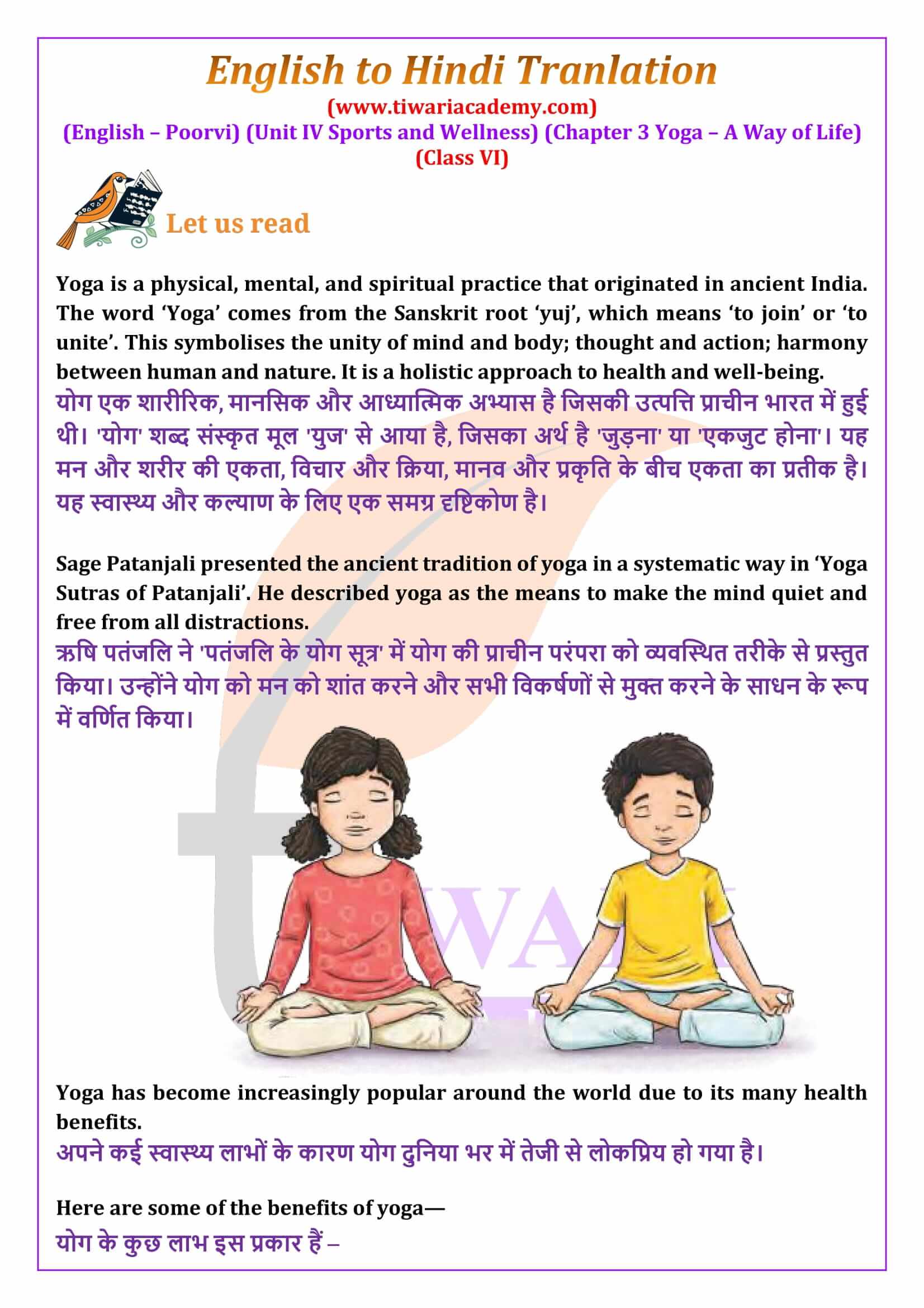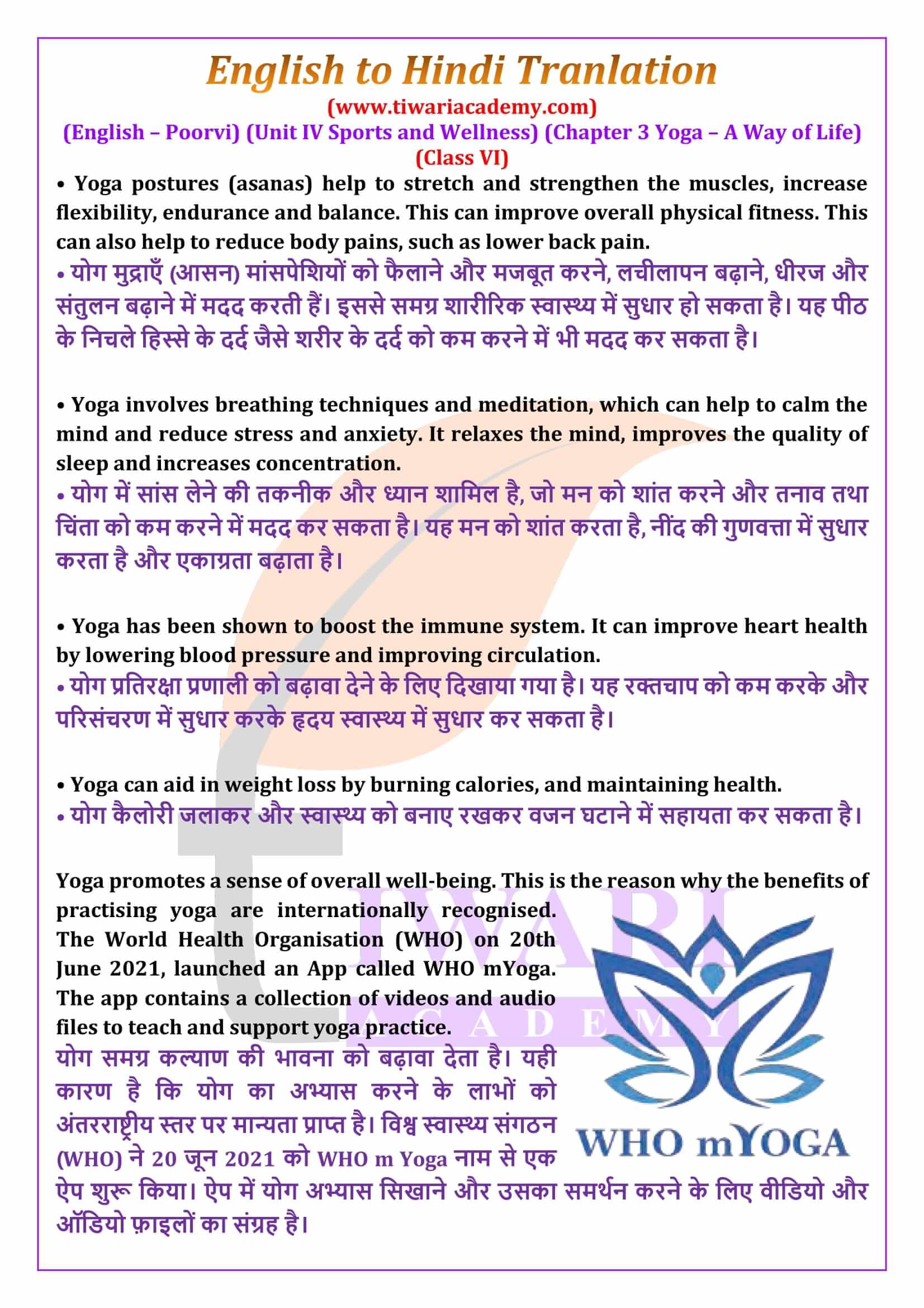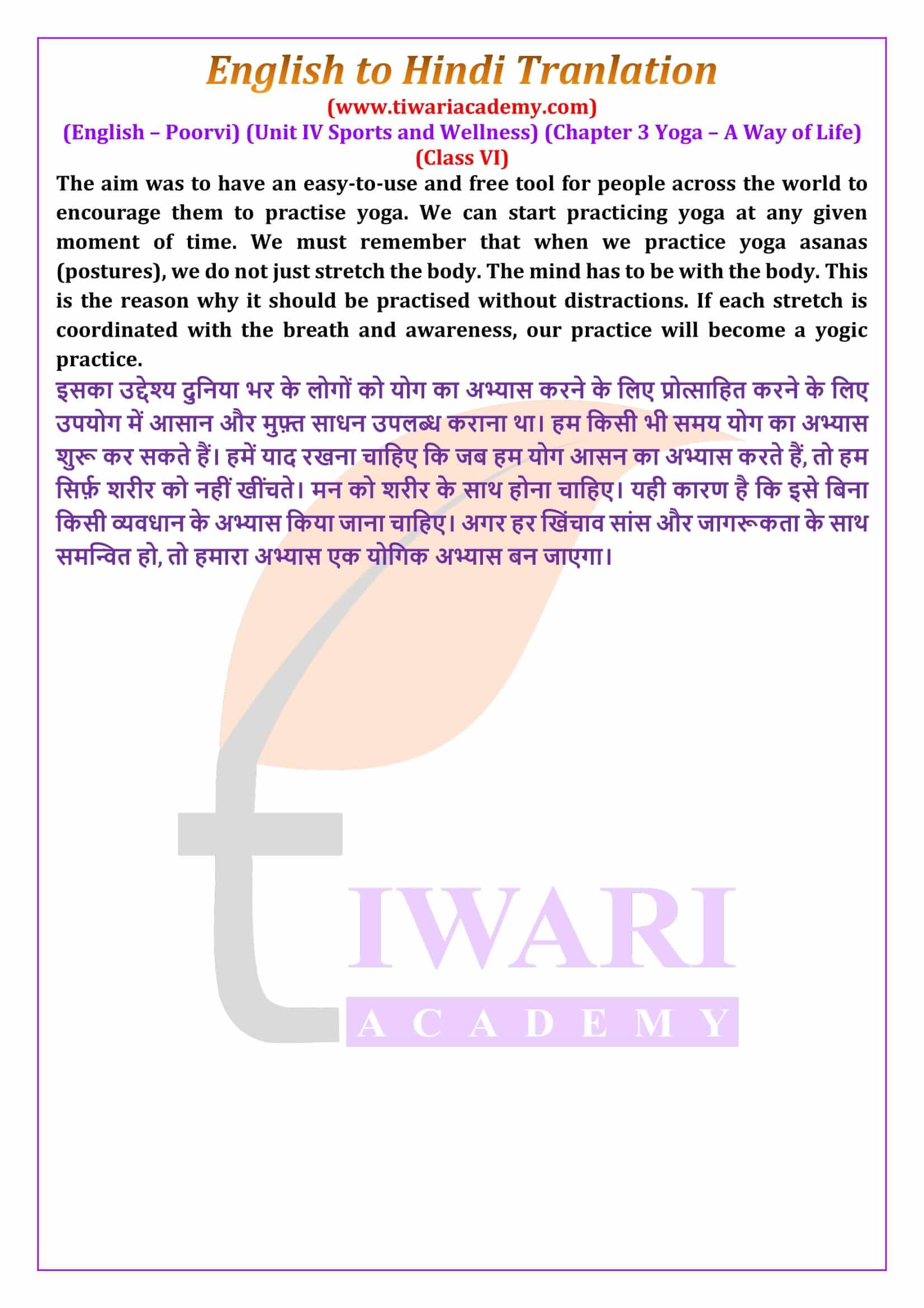NCERT Solutions for Class 6 English Poorvi Unit 4 Sports and Wellness Chapter 1 Change of Heart, Chapter 2 The Winner and Chapter 3 Yoga – A Way of Life for academic session 2025-26. Class 6 English Poorvi unit 4 English to Hindi translation, all the question answers are given here in simple format.
Class 6 English Poorvi Unit 4 Sports and Wellness
Class 6 English Unit IV Chapter 1 Change of Heart – Story
Prabhat always wanted to win. His parents, teachers, and friends said that he did not
know how to accept defeat. The fact was that he could not bear losing, not even at marbles. He felt so good when he won that he never wanted to give up that feeling. On the contrary, losing made him feel terrible. He thought that losing was the worst thing that could happen to anyone.
If Prabhat sensed that he would lose a game, he would not play it. He would take part only when he was sure of winning, even if the game lasted only for a minute. You could not stop him from playing the kind of games he was really good at, like badminton.
A new student joined Prabhat’s school, and his name was Surya. Surya was an excellent
badminton player. Prabhat waited for the last Friday of the month. Last Friday was significant.
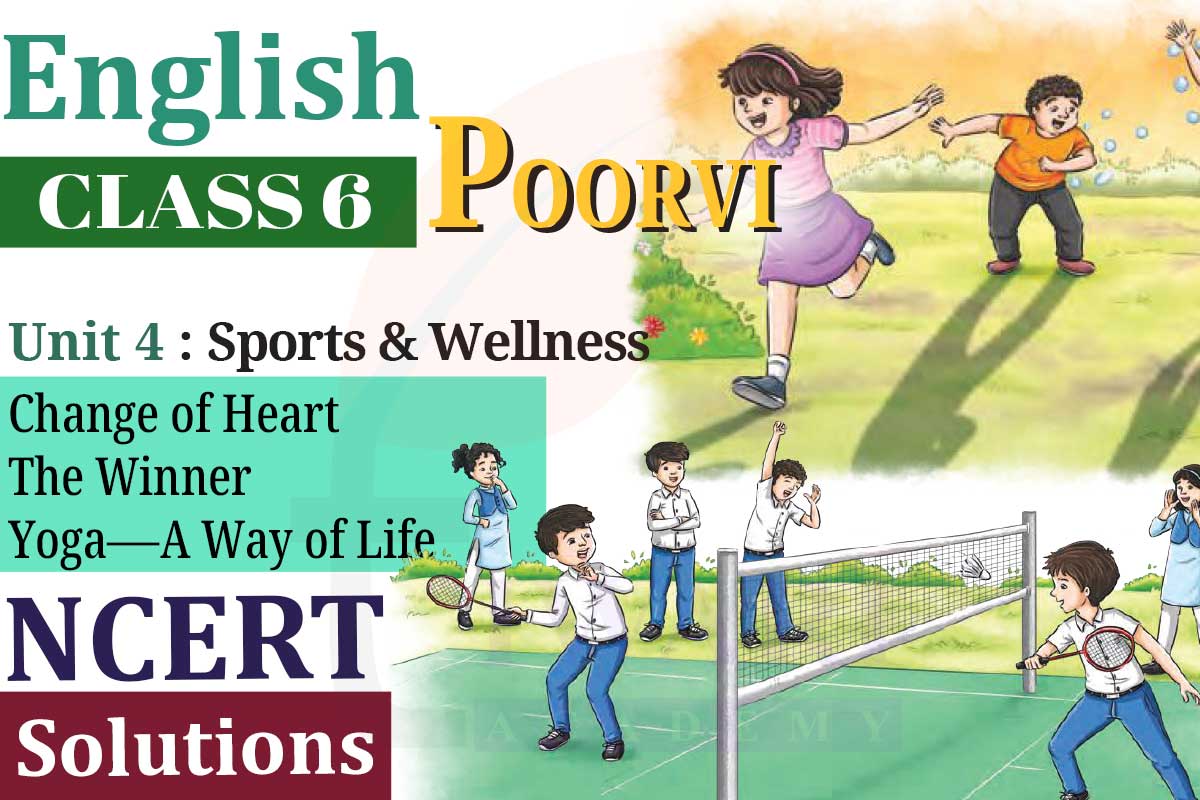
This was when the coach conducted friendly matches in the games period. The teams were
decided on Monday and it was no surprise when Prabhat and Surya were chosen to play
a round against each other. Prabhat was given the responsibility of keeping score for their match. On one hand, Prabhat prepared for the match with great seriousness. Surya, on the other hand, seemed relaxed, not taking the things seriously at all. He walked about the whole time, smiling and cracking jokes about all sorts of things. But on Friday, at the badminton court, Surya was a real phenomenon. He won points again and again, laughing and joking all the time.
However, Surya was paying so little attention to the match that Prabhat managed to change the scoreboard while his opponent was looking elsewhere. Prabhat managed to win by cheating. He made a big thing of his win, but it did not matter to Surya. “It’s been fun. We should play again some other time,” said Surya.
On that day, everyone was discussing their game and how Prabhat had played so well. Surprisingly, Prabhat could not sleep well that night. He had won the game but he did not feel as happy as he usually did. What was surprising was that Surya did not feel bad about losing. What was more surprising was that Prabhat saw Surya playing basketball the next day. Surya was so hopeless at it that he could not score a basket for ten minutes. Yet, he enjoyed playing the game. His happy smile never left his face. Prabhat kept a close watch on Surya for some days. He was great at some things, terrible at others but what was common wasthe enjoyment. He enjoyed everything equally. As Prabhat went on with his observation, he realised that to enjoy a game, you did not need a scoreboard to keep a tally of your scores. Neither did you have to worry about winning and losing. You needed to enjoy the game for its own sake. What matters is trying to do well, and enjoying every moment of it.
Prabhat learnt something through the observations every day, soon realising the change in himself. He had even begun playing hide and seek, and felt sad whenever it was about to end. He also started joking while playing badminton. Soon, the other students started talking amongst themselves, “Good fun playing with Prabhat, that fellow definitely has a great sporting spirit.”
Class 6 English Unit IV Chapter 1 Change of Heart – Summary
Prabhat, a boy who couldn’t bear losing, avoided games he might not win. When Surya, a skilled badminton player, joined his school, Prabhat anticipated their match. Despite Surya’s carefree attitude, Prabhat cheated to win, but felt uneasy afterward. Observing Surya’s joyful approach to all games, regardless of skill, Prabhat realized the true value of playing for enjoyment rather than victory. This newfound perspective transformed Prabhat, who began to appreciate and enjoy games more, earning praise for his improved sporting spirit.
Class 6 English Unit IV Chapter 2 The Winner – Poem
Evenings, we play ball next to the creek in our neighbour’s field. We run so fast I
can’t even catch my breath. When blue dark turns to black, cold grass aches our feet,
trees creep close—game’s over. Night wins!
Class 6 English Unit IV Chapter 2 The Winner – Summary
The poem describes playing ball by a creek in a neighbor’s field during the evening. The children run fast until they are breathless. As night falls and the grass grows cold, the trees seem to move closer, signaling the end of the game. Ultimately, night triumphs.
Class 6 English Unit IV Chapter 3 Yoga – A Way of Life
Yoga is a physical, mental, and spiritual practice that originated in ancient India. The word ‘Yoga’ comes from the Sanskrit root ‘yuj’, which means ‘to join’ or ‘to unite’. This symbolises the unity of mind and body; thought and action; harmony between human and nature. It is a holistic approach to health and well-being.
Sage Patanjali presented the ancient tradition of yoga in a systematic way in ‘Yoga Sutras of Patanjali’. He described yoga as the means to make the mind quiet and free from all distractions. Yoga has become increasingly popular around the world due to its many health benefits.
Here are some of the benefits of yoga—
• Yoga postures (asanas) help to stretch and strengthen the muscles, increase flexibility, endurance and balance. This can improve overall physical fitness. This can also help to reduce body pains, such as lower back pain.
• Yoga involves breathing techniques and meditation, which can help to calm the mind and reduce stress and anxiety. It relaxes the mind, improves the quality of sleep and
increases concentration.
• Yoga has been shown to boost the immune system. It can improve heart health by lowering blood pressure and improving circulation.
• Yoga can aid in weight loss by burning calories, and maintaining health. Yoga promotes a sense of overall well-being. This is the reason why the benefits of practising yoga are internationally recognised. The World Health Organisation (WHO) on 20th June 2021, launched an App called WHO mYoga. The app contains a collection of videos and audio files to teach and support yoga practice. The aim was to have an easy-to-use and free tool for people across the world to encourage them to practise yoga.
We can start practicing yoga at any given moment of time. We must remember that when we practice yoga asanas (postures), we do not just stretch the body. The mind has to be with the body. This is the reason why it should be practised without distractions. If each stretch is coordinated with the breath and awareness, our practice will become a yogic practice.
Class 6 English Unit IV Chapter 3 Yoga – Summary
Yoga, originating in ancient India, is a holistic physical, mental, and spiritual practice symbolizing the unity of mind and body. Sage Patanjali systematized yoga in the “Yoga Sutras of Patanjali,” describing it as a way to quiet the mind and eliminate distractions. Yoga’s popularity worldwide stems from its numerous health benefits, including improved physical fitness, flexibility, and reduced pain through postures (asanas). Breathing techniques and meditation in yoga reduce stress and anxiety, enhance sleep quality, concentration, and boost the immune system. Yoga also promotes heart health and aids in weight loss. The World Health Organization recognized these benefits by launching the WHO mYoga app in 2021, providing free resources to encourage global yoga practice. Effective yoga practice requires mindfulness, aligning the body and breath without distractions.
